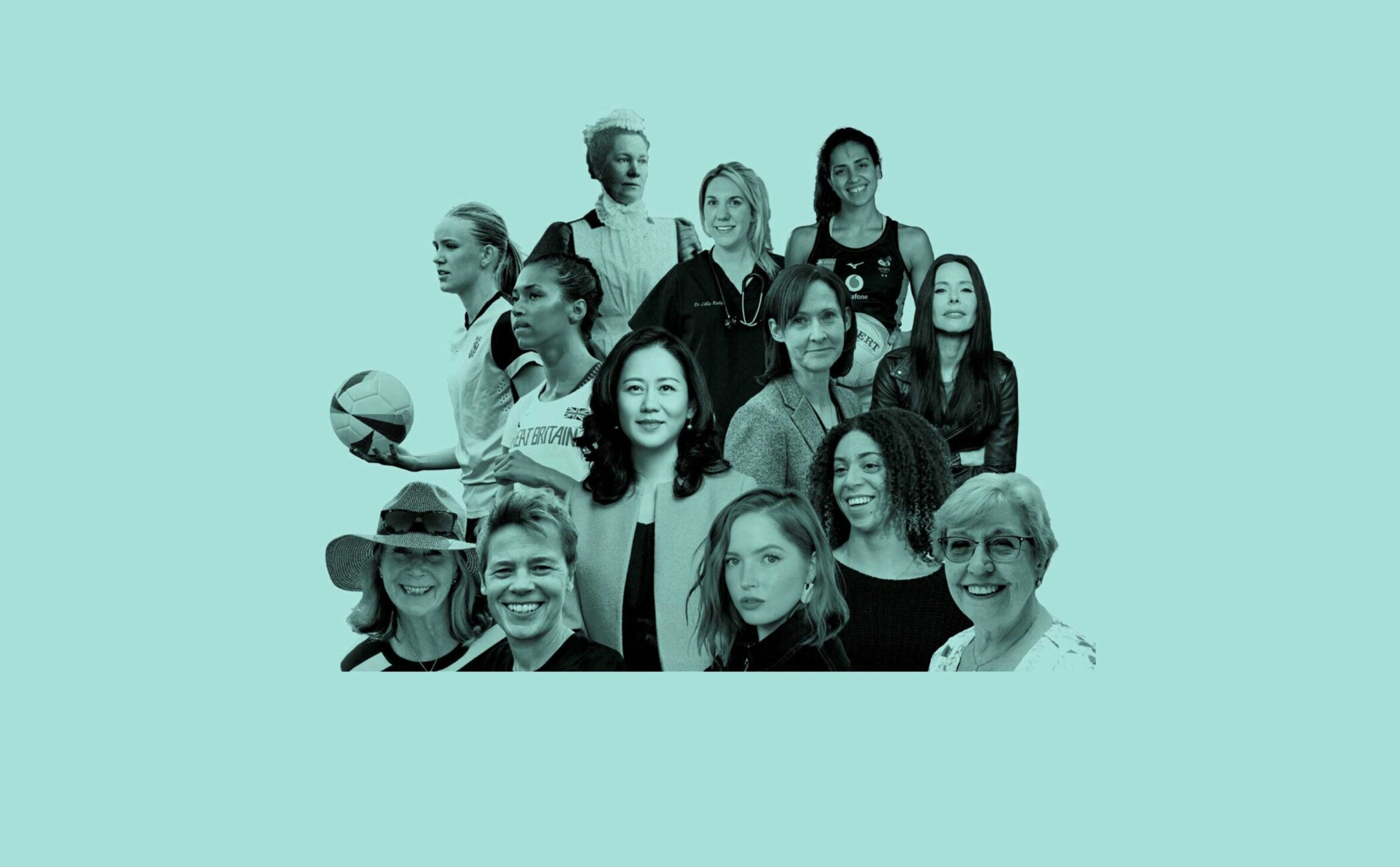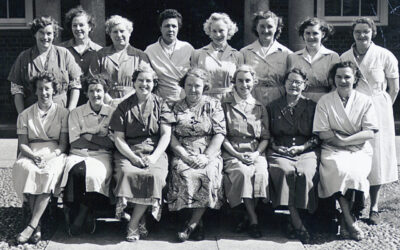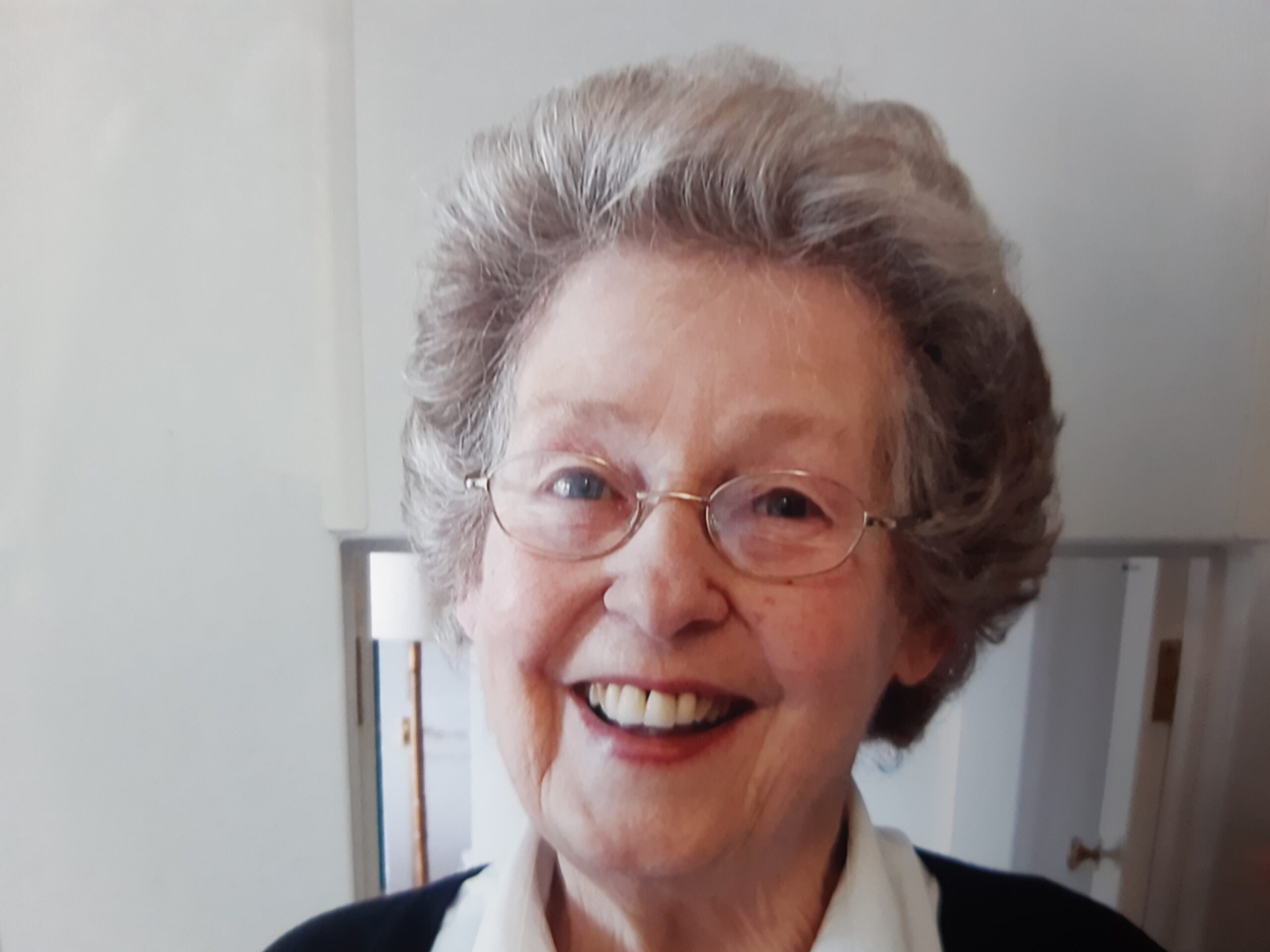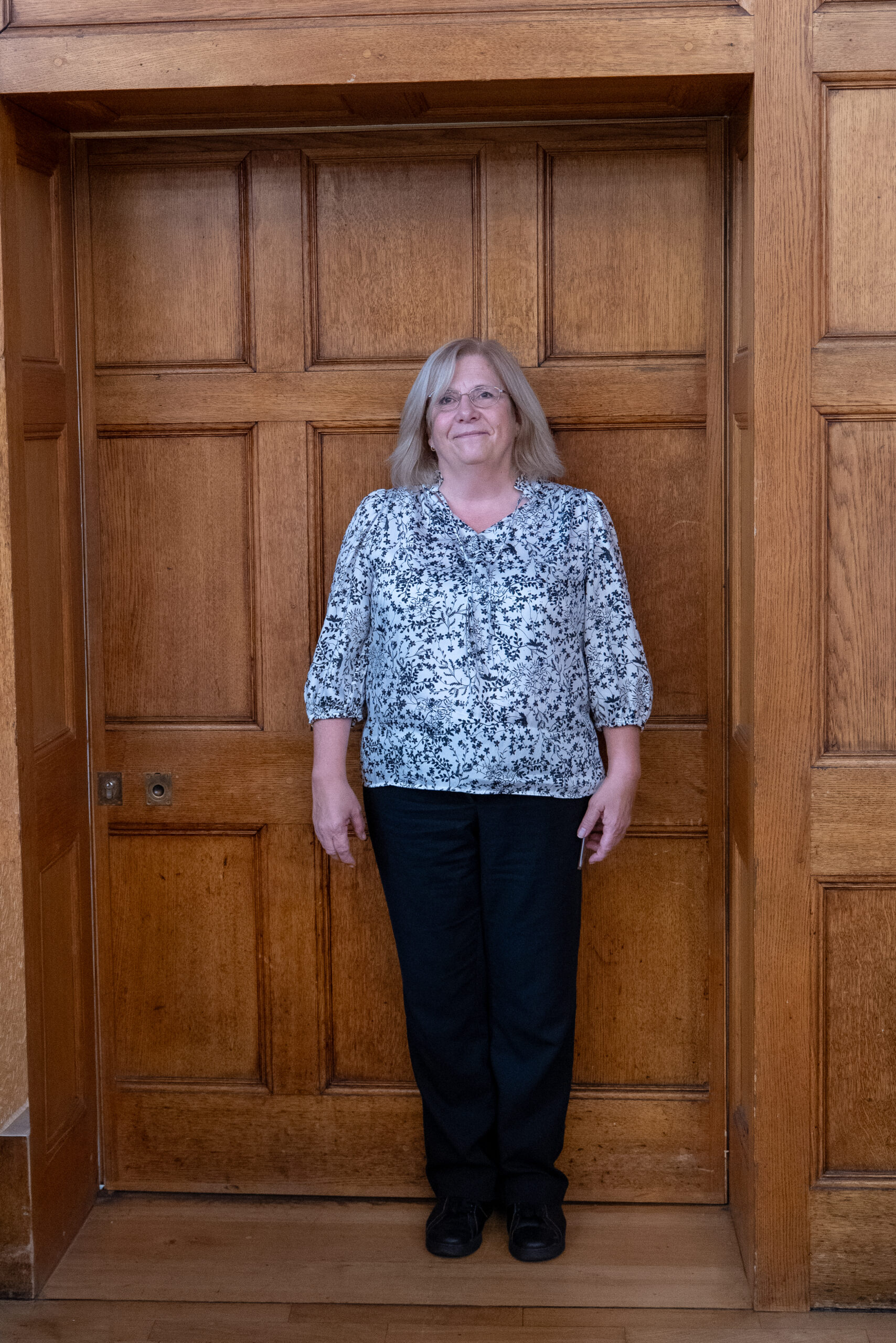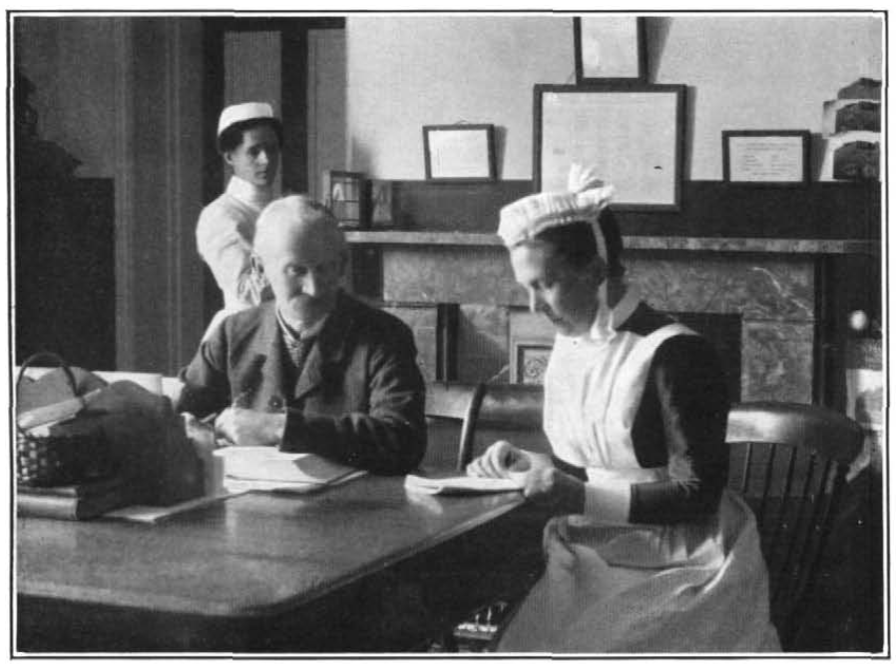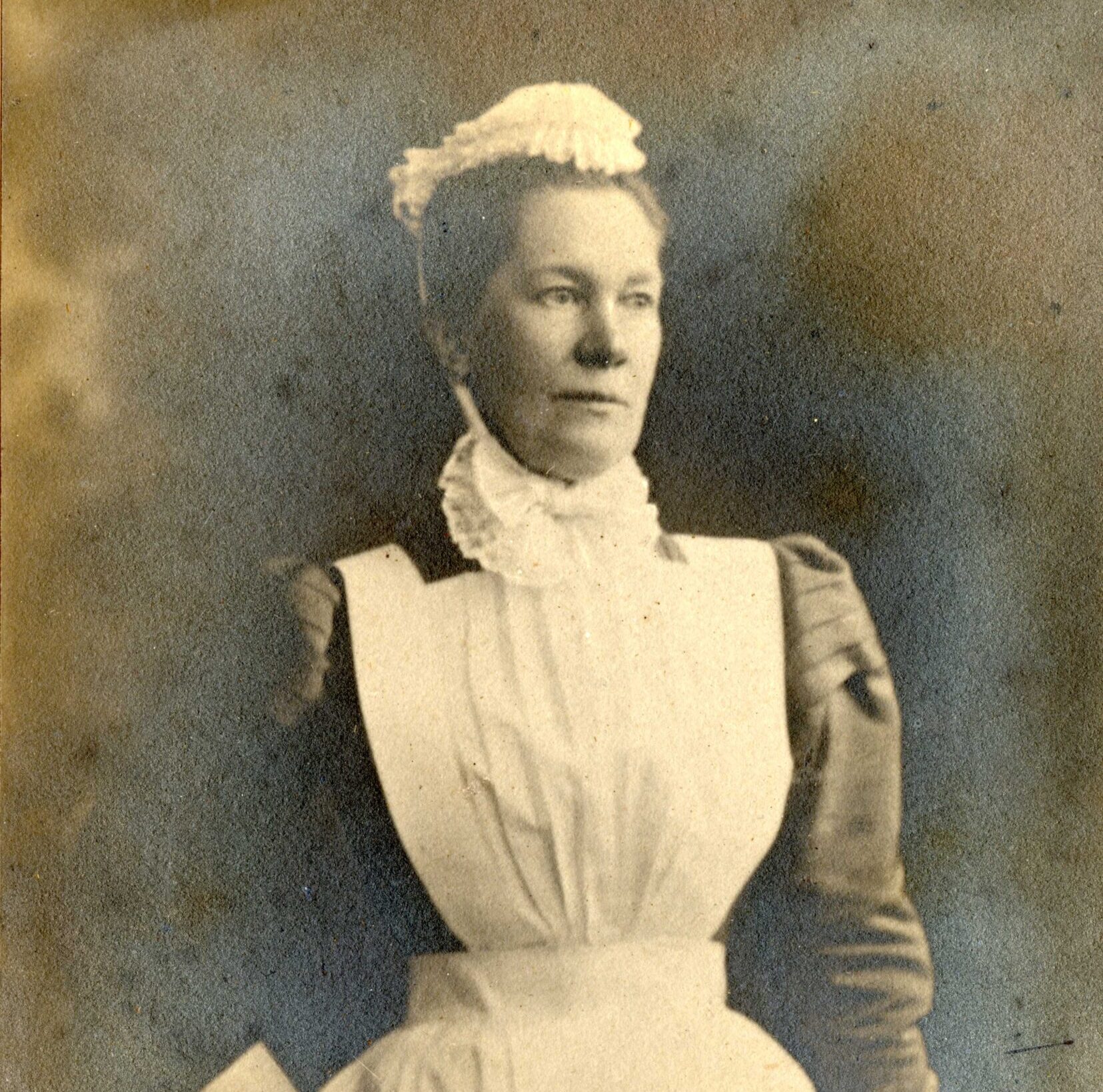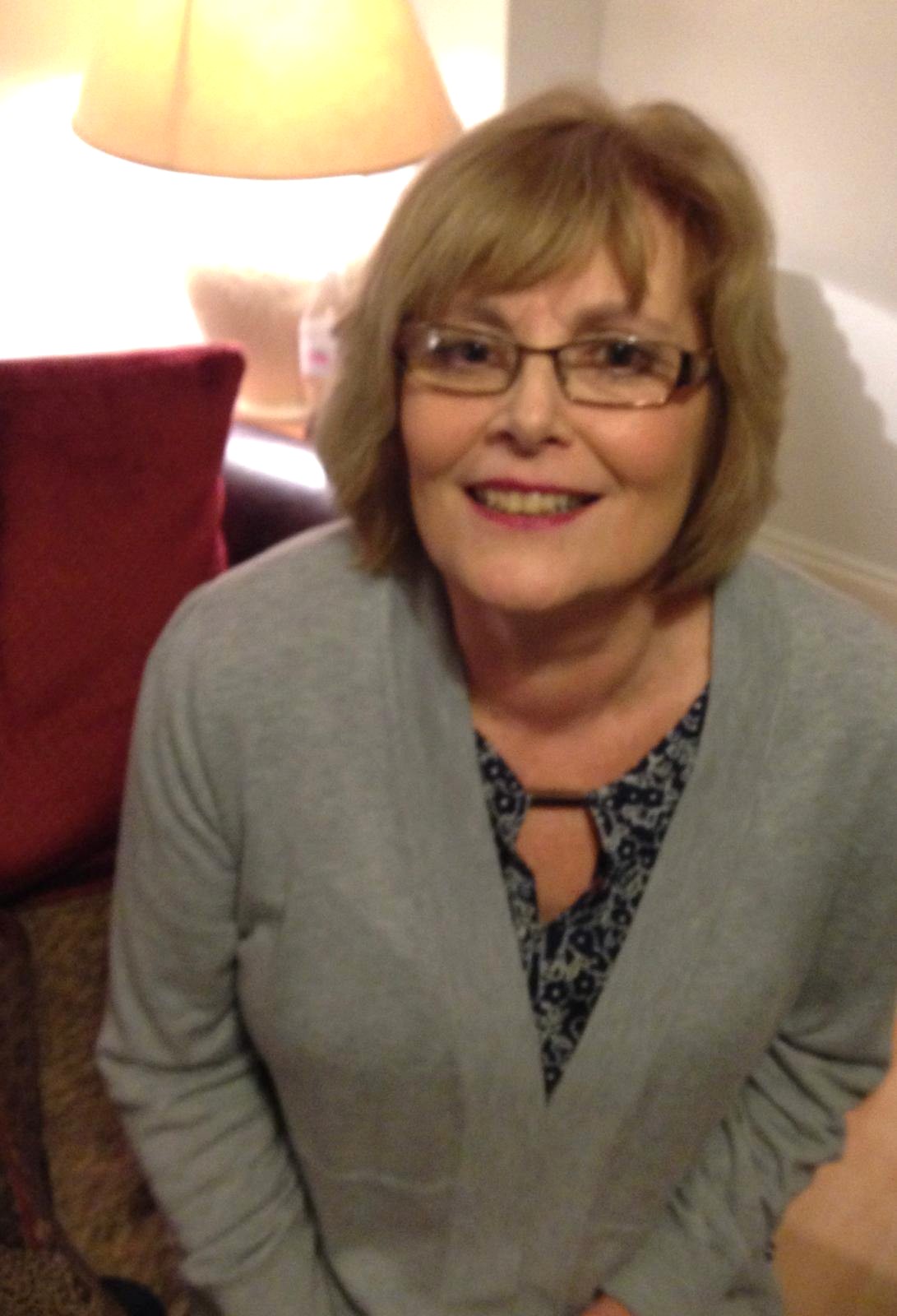 Skip to
Skip to
 1
First Girls
1
First Girls
 1
1Here, you will read the story of the first girls of Wellington – from just a handful of teachers’ daughters to the official first cohort of nine in 1975. This marker is situated at Apsley House, the building that became the home of girls’ boarding at Wellington and marked the beginning of our co-educational journey.
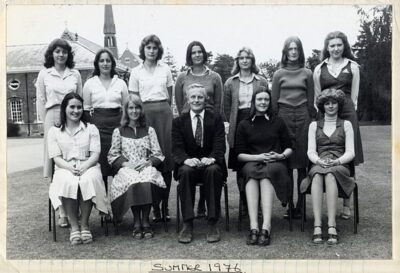
The stories of these first girls sets the stage for the rest of our trail. Their memories of those early days give you a great insight into the beginning of our journey to co-education. From stories of being toughened up by often finding themselves outnumbered to the reaction of some of the rest of the Community, their experiences had a lasting impact on them, the wider community and life today.
Meet the Pioneering Women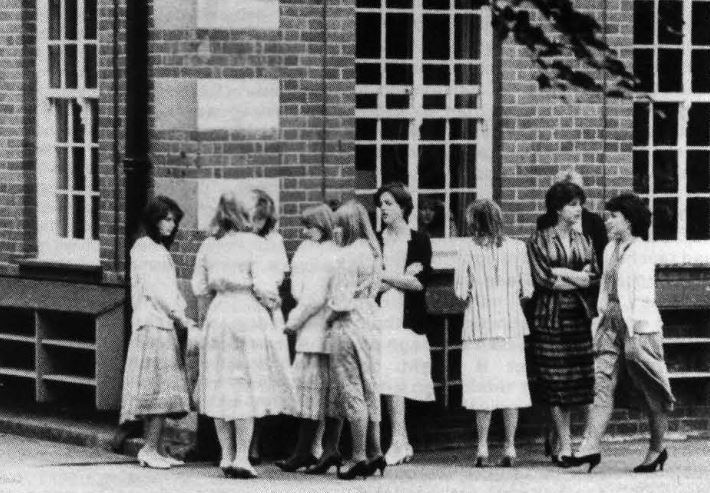
Introduction
From the late 1960s, a few daughters of teachers – one or two a year – joined Wellington’s Sixth Form on an informal basis, generally to improve their chances of going to Oxbridge. This led to increased pressure from Old Wellingtonians to formally admit girls to the Sixth Form.
In April 1975, the Master, Frank Fisher, announced that 15 girls per year would join the school, strictly as day pupils – “It will not be possible to cope with boarders.” This Sixth Form girls’ House was named the Apsley, and given a base in the ground floor of what is now the Wellesley. The first nine girls arrived in September 1975.
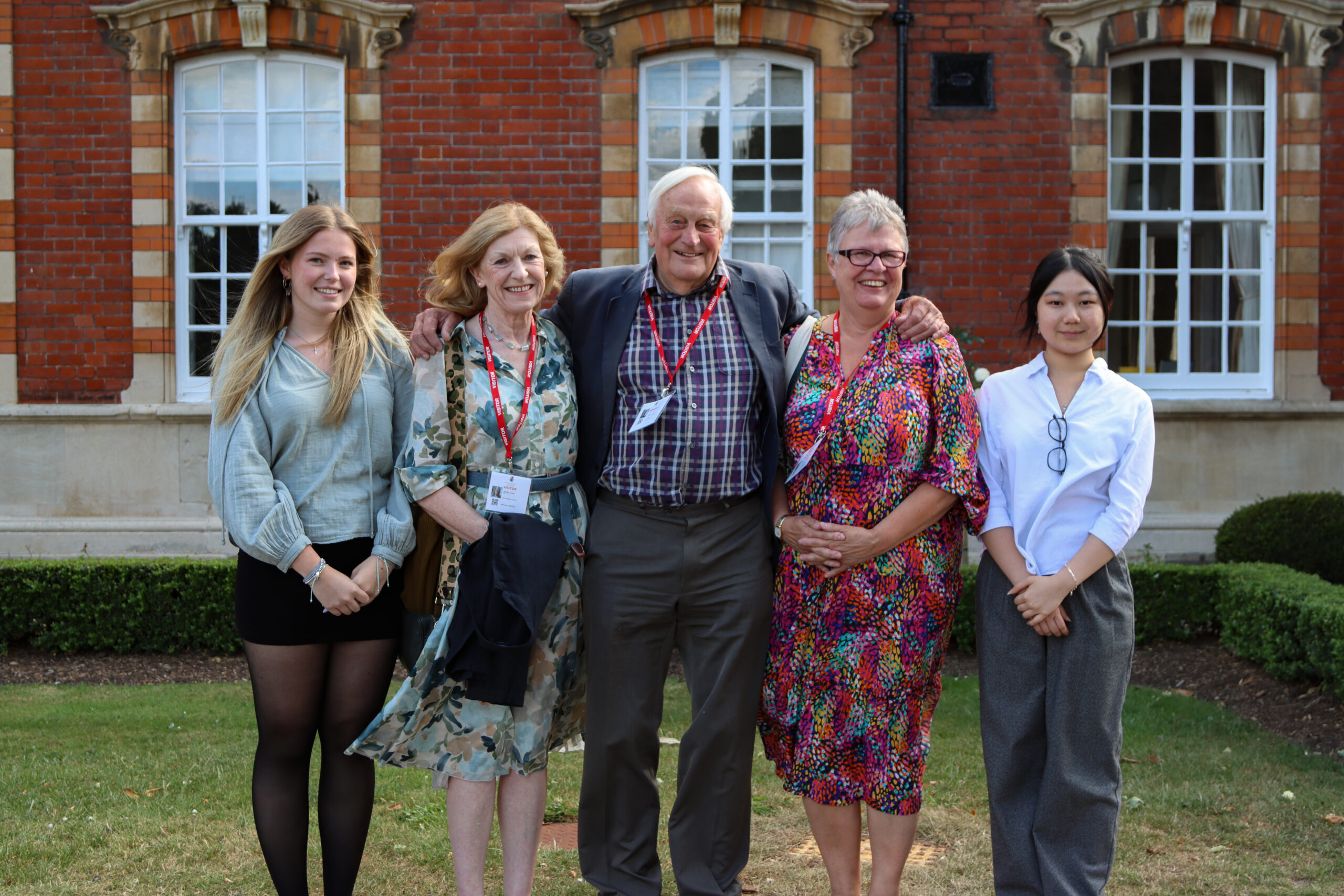
Joining a school of 704 boys was not easy, but the girls formed a tightly knit group and supported one another. The 1976 intake of eight girls appreciated their lead, but found it hard to integrate with the year above. Although all the early girls faced a degree of antipathy from both boys and some teachers, they persevered, and soon it was decided to admit girls as boarders. The majority of the Sanatorium was converted into the Apsley’s new home, featuring double and single rooms, a sitting room, kitchen and dress-making room. The first boarders arrived in Michaelmas 1978, and numbers soon expanded to a House of around 30.
The story of the first girls told in their own words
While preparing the Pioneering Women’s Trail, we contacted several women who had joined Wellington as pupils between 1969 and 1977, and asked them to fill in a short questionnaire. Two of those early girls and the then HM, Norman Porter, also visited Wellington in June 2025 and discussed those early days with some of our current Sixth Form pupils. Here, we draw together their responses, highlighting common themes in their experience as the earliest Wellington girls. We have used maiden names throughout.
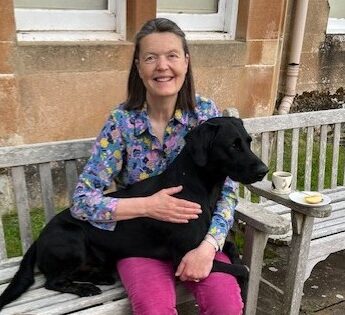
Why come to Wellington?
The very first girls arrived at Wellington for a variety of reasons. For some, the impetus was academic. Ghislaine Galbraith wanted ‘to do A Level retakes and take one more A Level in a year, plus attempt to get O Level Maths’. Jackie Potter came to Wellington because ‘the ballet school I attended from eight years old only offered education up to O Level. As I was quite academic, my parents felt I should progress to A Levels’.
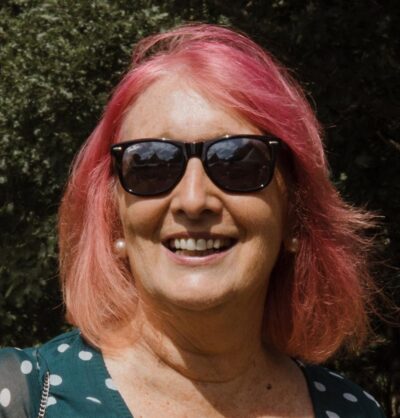
However, for Diana Jones, the opposite was true: ‘I was at an academic all-girls school which provided a very narrow education and focused only on exam results. There was no time for music, sport, anything creative or any activity that wasn’t a core academic subject. Wellington provided a broader education.’ And Anne Seymour arrived almost by accident: ‘I came to Wellington as my parents failed to take me seriously when I said I wanted to move school. I had asked to go to Marlborough or Charterhouse, where girls in Sixth Form were established, but they failed to put my name down for either of them. I was adamant I wanted to be anywhere but the school I was at, and so Wellington came up as an option.’
Many girls had family connections to the school. Jackie Potter and Nicola Shadbolt, Wellington pupils before the first official intake of 1975, were both daughters of Wellington or Eagle House teachers. Anne Seymour’s father was an Old Wellingtonian, Ghislaine Galbraith’s was a Governor and her brothers already at the College, while Jennifer Park’s father ‘had been friends with Old Wellingtonians at Cambridge and in the Army and thought it sounded a good school for me!’ She went on: ‘I think my parents had expected a lot more girls than the nine in that first intake. It was quite a change after the five previous years I had spent at a girls’ convent boarding school!’
Most of the women stated that the choice was really made by their parents, not them. Anne Seymour summed this up: ‘All in all, I don’t think “choice” for me was an option but that reflected much about the attitude to girls and education generally at the time.’
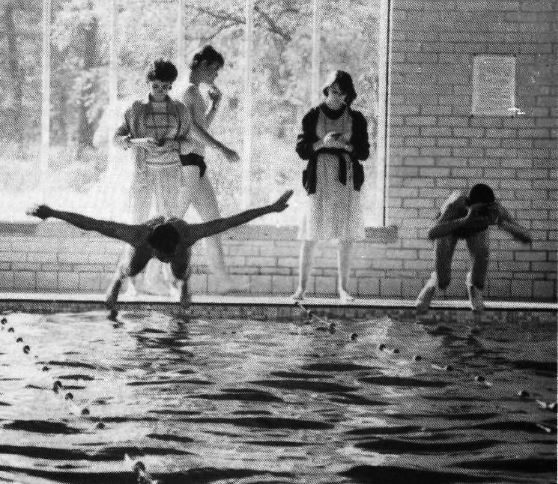
First impressions and reaction from the boys
Life as one of a tiny minority of girls in a society of boys was not easy. The first girls felt conspicuous, always under scrutiny. Jackie Potter, literally the only girl at Wellington at the time, wrote:
‘Windows! The main building of College has so many windows and you feel you are potentially being observed all the time. Walking up the drive to class, always on my own, could be nerve-wracking, as could facing hordes of boys as I moved from class to class, again, always on my own.’
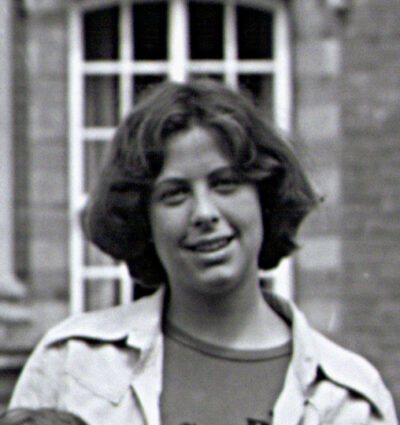
Liz Knollys wrote simply: ‘Fitting in as just another new student was impossible – we were girls!’ While Anne Seymour commented that ‘being so few of us, there was no hiding’ and Jennifer Park added that ‘as we were so few, the whole of College always seemed to know what you were up to’.
Nowhere was this felt more than in the Dining Hall, where girls were acutely conscious of how visible they were. Nicola Shadbolt, one of only two girls at College in 1972, recalled:
‘…walking into the Dining Hall where 675 boys, all in tweed coats and cavalry twill trousers, stopped eating and stared at us. It wasn’t a “Who are they?” it was a “What’s that?” You got the distinct impression that you were something alien, and not one of them’. Jennifer Park, one of the 1975 cohort, tellingly used almost the same phrase to describe her experience: ‘I still remember the first day when we walked together into the Dining Hall for lunch and the whole room went completely silent. It was like the Martians had landed!’ A couple of years later, Anne Seymour recalled ‘the marks out of ten being given [by boys, to girls, to rate attractiveness] in the Dining Hall queue’.
Things were not much better in the classroom. Jackie Potter recalled, ‘In class, the boys did not talk to me, though they were not unkind or unfriendly, just shy, I think.’ Diana Jones felt a pressure ‘to be as good as the boys in class – we didn’t want to let the girls down’. Liz Knollys recalled that ‘often, one would be the only girl in the class, facing teasing (most of which was harmless) and feeling very much in the spotlight’, and told the following story to illustrate her point:
‘As I took my seat for class, the boy behind took a maths compass and jabbed it in my bottom. And that really hurt. I sat there with tears in my eyes, trying not to cry. The teacher noticed my distress and sent me from the room. When I had left, the boys received a lecture on periods and how, at certain times of the month, girls could become over-emotional. After that, every month the class would start with “Please Sir, we have to be nice to Liz don’t we, Sir?”’
Outside the classroom, it was difficult to make friends. As well as their gender, there were other factors that made the girls feel like ‘outsiders’. As Jennifer Park observed, ‘by the time we arrived, the boys had already spent three years together and were established in their friendship groups and Houses, so it was quite difficult to integrate’. Moreover, as Diana Jones recorded, the early girls were day pupils in a school made up almost exclusively of boarders, ‘so integration was slower than it may have been had we been boarders too’.
Almost always at single-sex schools up to this point, neither boys nor girls really understood how to relate to one another. This could lead to confusing behaviour. Jennifer Park found that ‘sometimes it was “cool” to be seen talking to the girls, sometimes it wasn’t; one never quite knew how the boys were going to be’, and Anne Seymour recalls that ‘literally, one day, a group of boys would be friendly, then the next you would be ignored’.
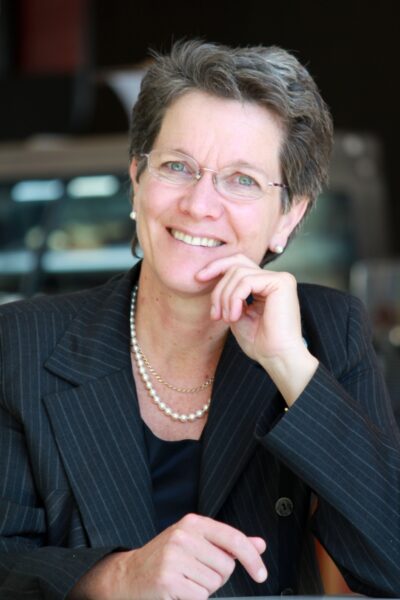
Nicola Shadbolt found that usually ‘the boys gave each other a really hard time if they were seen talking to me, so most boys avoided doing so, apart from the renegades or those who were brave enough to put up with the ragging they got’, and reflected on herself that ‘my experience with boys was limited. I was an immature 16-year-old and struggled to understand the questions they asked about being female. In time, I did make friends, but regularly broke the rules to see them, as socialising happened in the dorms and the dorms were out of bounds’. Of course, attraction between the sexes did occur, and Jennifer Park commented that ‘it was a rather heady time for all concerned and looking back on my school reports, I can see that I was often distracted’.
Not surprisingly, all this caused strong feelings in the girls. Jackie Potter described feeling ‘hugely daunted’ when she arrived at Wellington, and Angela Woolnough, ‘petrified and overwhelmed’ during the first term. Liz Knollys called the experience ‘terrifying!’, ‘tough’ and ‘a real baptism of fire’.
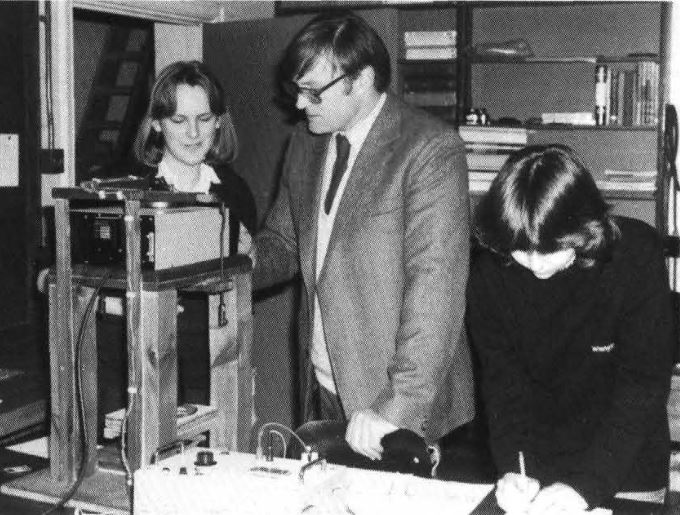
The teaching staff
Wellington’s early girls faced an entirely male teaching staff – the first women were not appointed until 1978. Diana Jones found that ‘some of the initial challenges related to a different style of teaching. I wasn’t used to being asked for an opinion or discussing a point, and had to adjust to this quickly. We had been very much spoon-fed at my previous school’. Anne Seymour ‘had been at a very undisciplined school before, so found Wellington quite strict’. Jennifer Park also commented that ‘it took a while to get used to being taught in boys’ classes by male teachers, after the softer approach in an all-female environment. I don’t think Biology practicals at the Convent would have involved being covered in live locusts from top to toe, making fake blood for CCF manoeuvres, or dissecting squirrels caught in the grounds!’
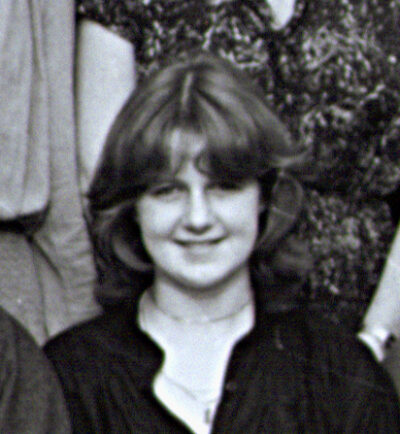
Moreover, not all the teachers had been in favour of the admission of girls, and some made that clear. Anne Seymour encountered ‘evident hostility to the whole idea of girls at the school expressed by some of the staff. Many of the older bachelor teachers appeared to be slightly terrified of us. A telling memory I have is when it was announced that, at a staff meeting, it had been agreed that girls were banned from wearing boots as it was considered too “provocative”.’
Teachers’ wives, although not officially on the staff, were an important part of the Wellington Community, and several helped to make life easier for the girls. Jackie Potter, sole girl in 1970–71, told us that ‘Mary Comber, wife of the Combermere Tutor, very kindly had me up for coffee every weekday in morning break’. Ghislaine Galbraith, whose family home was in Scotland, was offered a private boarding arrangement with a teacher’s family. ‘Mrs Homfray-Davies was especially kind. I was the only girl going up to supper in the main Dining Hall, as the rest of the girls went home in the evenings. After a week or two, she kindly said that I could have supper with them as a family.’
Despite these gestures, many of the women felt, with hindsight, that the school had given insufficient thought to the girls’ needs, or the challenges they would face. Ghislaine Galbraith wrote that ‘the teachers didn’t quite know how to “deal” with us…. Rules were made around us’. While Liz Knollys commented that ‘the school really wasn’t prepared’. Anne Seymour, too, thought that ‘it was quite clear that there had been very little effort made by the school to understand what they needed to do to make Wellington work as a co-educational environment. During my Oxbridge term, I got to know Frank Fisher [the Master] well and he acknowledged that he had not really recognised the challenges the girls had faced’.
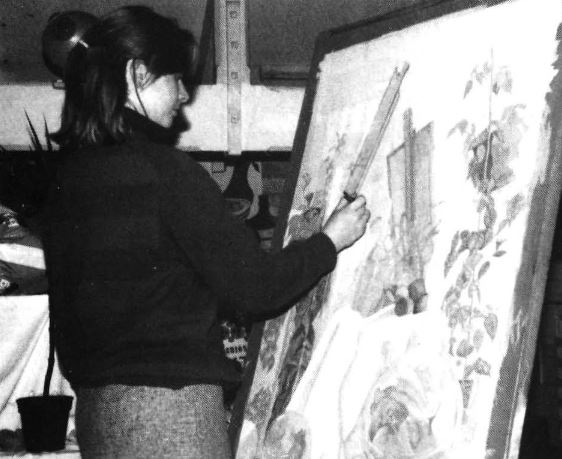
As illustration, Anne described an incident in which, alone in the Apsley common room, she encountered an older, aggressive and drunken boy. Her attempts to stop him smoking a cigarette were unsuccessful, as ‘instinct told me not to antagonise him’. She was later told that this failure was what stopped her from being made a Prefect, and comments that the fact that the difficulty of her position ‘could not be recognised by those in charge implied they did not fully appreciate the barriers the girls faced’.
One step in breaking down barriers was also described by Anne:
‘Frank Fisher took a Divinity lesson, and a friend and I were the first girls to join his class. Once he was called away, and so set us a selection of subjects to write a timed essay on. The best would be read out the following week. At the start of the next class he announced that, much to his genuine amazement and astonishment, the girls’ essays had easily been the best and would be read out. I would like to think that he felt a greater respect for us all from that point.’
Nevertheless, Anne’s summary was that ‘The challenges were enormous. I sometimes feel that the experience of surviving those years at Wellington took a lot out of us. The academics were secondary to just getting through, and the feeling was always there that we were tolerated by many of the teachers, but not accepted’.
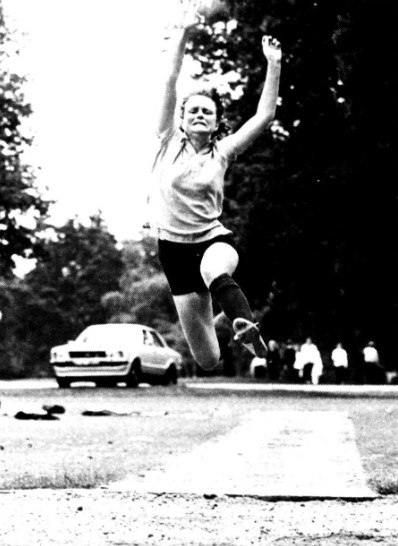
Sport and alternative activities
The lack of planning and provision for girls was especially obvious in the area of sport and other extra-curricular activities. Jackie Potter recorded that ‘there were no activities or sports for me in the afternoons. I often took refuge in the gramophone room of the Music School, where one or two of the music scholars would talk to me’. Even at the end of the 1970s, Anne Seymour found that ‘there were not enough of us to form any sports teams, and instead of being allowed to join the CCF, we were made to have cooking lessons with one of the teachers’ wives. This only reinforced the view of many that we were the weaker sex’.
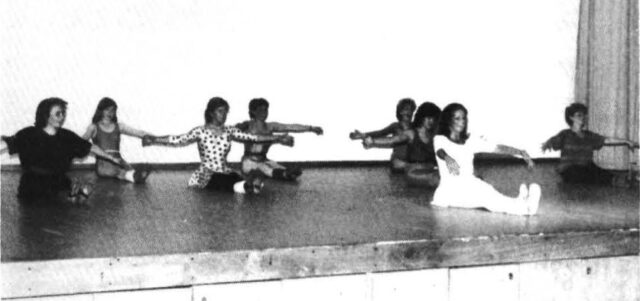
Nicola Shadbolt recalled that ‘in New Zealand, I had been a keen equestrian and loved school sport – netball, basketball, swimming, athletics – none of this was possible at Wellington’.
Despite this, Jennifer Park considered that ‘Saturday afternoons were fun, watching the First XV on Bigside or the First XI on Turf. We couldn’t join the CCF, but as a one-off were allowed to tackle the assault course!’
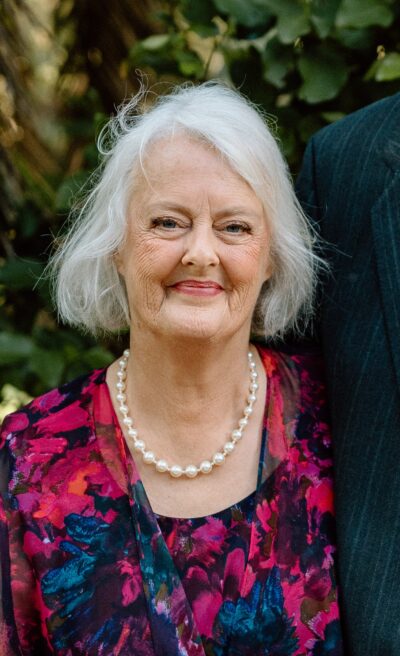
Some sports were offered to the girls when possible, but they and the facilities were limited.
Jennifer Park told us that ‘our changing room was a spare bedroom in the Master’s Lodge! We played mixed hockey with the First XI (terrifying!), and netball in the Old Gym, trying to avoid concussion on the pillars. As a keen swimmer, I joined the swimming club. There was no indoor pool then, so we trained at RMA Sandhurst – a new level of intimidation and it was very challenging racing the boys!’
Liz Knollys found that ‘as we were so few in number, almost everyone had to be in the hockey team, whether one had played before or not. I was and hadn’t. We lost.’
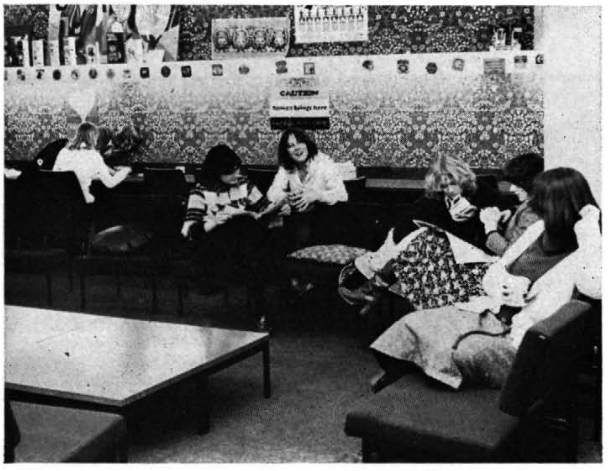
The positives
Despite all the challenges they faced, all the women who replied to us had some positive memories of Wellington.
Some highlighted the academic provision and inspirational teachers. Nicola Shadbolt found that ‘the Science lab facilities at Wellington were fantastic compared to my New Zealand school, although it was a steep learning curve for me to learn how to use them’. Jackie Potter said, ‘I had wonderful teachers in Ron Herring (French), Hugh Amos (Classics), Mike Fox (English) and David Lindley (History of Art)’, while Angela Woolnough considered that ‘my favourite teachers were Mr Ramage and Mr Ridley, who both taught me English Literature. They were brilliant academics, incredibly inspiring, and left a lasting impact on me’. Anne Seymour recorded that ‘one of the English teachers, Mr Fox, believed in my ability to do well in the subject, and thanks to him I went on to read English at Oxford’.
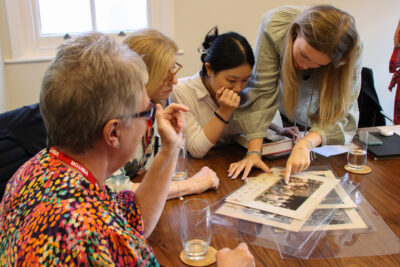
Achievements were made all the sweeter by being the first girl, or group of girls, to attain them. Jackie Potter notched up several of these: ‘I am the first girl to win Lord Derby’s French Prize, and also the Anthony Browne Piano Prize. Also, I was invited to address the Mornington Society on the subject of Women’s Liberation, and to play the last movement of a Mozart piano concerto in the Speech Day Concert, both of which I did’. Diana Jones recalled ‘being proud that, in my second year, we entered the House Music Competition for the first time and won’, while Jennifer Park cherished the memory of ‘my first Speech Day and the girls’ first Master’s Callover in Front Quad. It was a spectacular day that topped off a great term’.
One co-curricular activity open to the girls was drama, and several had good memories of this. Jackie Potter took part ‘in a production of Ibsen’s play Ghosts as Regina, the maid, with Seb Faulks as Pastor Mander’. Liz Knollys ‘enjoyed Pygmalion, even though I was only allowed to be Eliza Doolittle before her transformation!’ Jennifer Park ‘especially enjoyed drama. It was great to be involved in school plays and choral productions, such as Macbeth and Carmina Burana’. Anne Seymour recorded that ‘I was very keen on acting and was able to get very involved in the theatre. One term, I was in three plays (shows how the academic side definitely took second place!). My favourite memories will always revolve around my time in the theatre’.
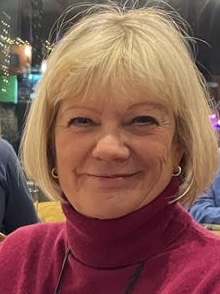
Perhaps the best parts of the girls’ experience were the good times they had and the friendships they made, with one another and with the boys. Nicola Shadbolt wrote that ‘there were some very special friends made, people who were brave enough to ignore the taunting. I remember one fondly who kept his motorbike at our house, he was a very genuine person and a good friend; another was a talented musician’. Ghislaine Galbraith considered herself ‘very lucky in having my brothers there at the same time… I met all their friends, which was a good mix. As I was only there for a year, it did go very quickly, and in general I had happy memories of my time there’.
Jennifer Park and Angela Woolnough both had vivid memories of the ‘long, hot summer’ of 1976. Jennifer enjoyed ‘lots of time at the outdoor pool, taking part in fire patrols around the College grounds and going to parties… great fun!’ While Angela recalled that ‘secret pub jaunts, illicit parties and group swimming/picnics all led to frequent rule-breaking!’ Liz Knollys has found her Wellington friendships a lasting legacy: ‘I made some terrific friends, male and female, many of whom I still see. Wellingtonians do tend to stay in touch, and that’s true even now.’
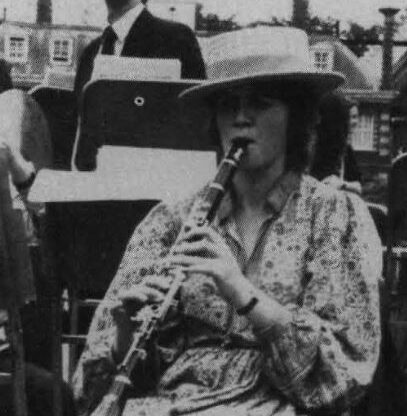
The influence of Wellington
We asked all of our participants, ‘Looking back, how do you think your Wellington experience influenced your life?’ Almost all of them felt that the challenges they had faced as early girls in an overwhelmingly male environment had increased their resilience, making them more able to face challenges in later life. For example, Nicola Shadbolt wrote: ‘My time at Wellington helped me to develop the thick skin required to cope in male-dominated situations, which has held me in good stead. An ability to handle being the lone woman and not let that detract from the job at hand is invaluable. To know that derision is usually due to issues the derider has, not you, enabled me to progress regardless.’
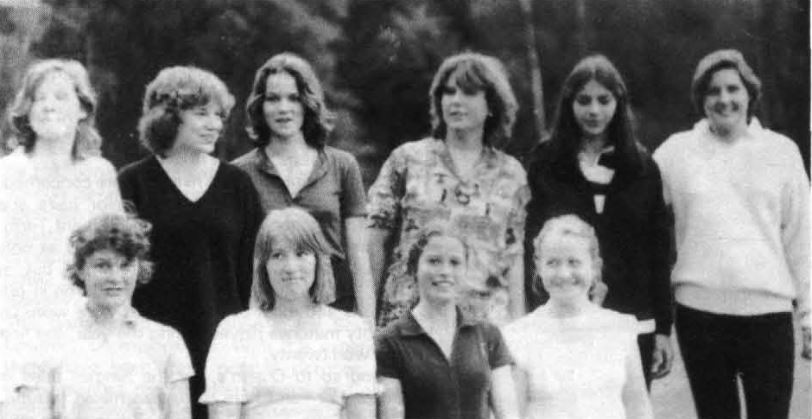
Anne Seymour felt similarly: ‘I think my time at Wellington toughened me up. You had to learn how to move on and not let the behaviour of others get to you. Interestingly, I found myself working in property development roles at a time when very few women were seen on a building site. It was an environment where women were not always recognised as equals, but I had learnt how to manage that.’
So did Jennifer Park: ‘I definitely left Wellington much more resilient and comfortable working in male-dominated environments, and this made life easier for me than other girls when I started working in the City in the 1980s. The encyclopaedic knowledge I gained at College of the rules of rugby and cricket has also helped me communicate with men along the way!’
Diana Jones concurred: ‘I think that my time at Wellington gave me resilience, perseverance and increased determination, which have enabled me to manage new or difficult situations and also to appear positive and unfazed about such situations.’
Lastly, Liz Knollys felt that her experience had given her not only resilience but increased empathy with those in a minority: ‘It certainly made me tougher than I would have been; I can cope in most situations. It makes me aware of those who are outnumbered and I feel a comradeship with them.’
Information written and compiled by our archivist, Caroline Jones, 2025
 2
Sporting Greats
2
Sporting Greats
 2
2Competing at the highest levels in a variety of sports, Wellington girls and staff have a rich history of incredible sporting achievements.
If you are walking the trail, head towards the Dance Centre and take in the open playing fields that have hosted countless moments of joy and challenge, of fun, pain and pride shared with teammates. Our pitches and spaces have grown to give boys and girls the space to play, perform and compete at the highest levels. As you look around the sporting facilities, you’ll find stories and celebrations of Wellington girls and staff whose commitment and talent brought success across many sports, their achievements recognised side by side with the boys’.

Morgan Lake (Hn 15)
Morgan Lake is one of Britain’s most accomplished high jumpers, known for breaking records and redefining what’s possible in women’s athletics. Showing talent from an early age, breaking national age-group records as a teenager, Morgan announced herself on the global stage at just 17 by winning double gold in the high jump and heptathlon at the 2014 World U20 Championships.
Though she first made her name as a heptathlete, Morgan soon specialised in the high jump, where her career reached new heights. At the 2016 Rio Olympics, she became the first British woman since 1992 to reach the Olympic final in the event. In the years that followed, she won multiple British titles, claimed silver at the 2018 Commonwealth Games and, in 2023, set a British indoor record of 1.99m. In Zurich 2025, she went one better, clearing 2.00m – a new British record that placed her among the world’s elite.
Her journey has not been without challenges. Injuries, including one that forced her to withdraw from the Tokyo Olympics, tested her resilience. She has also spoken openly about navigating body image pressures as a tall, young woman in sport, using her platform to champion body positivity and women’s confidence in athletics.
Beyond competition, Morgan remains deeply connected to her roots. She has returned to Wellington College to speak with young sportswomen, sharing her experiences and offering advice from the perspective of an elite athlete. Young Wellingtonians have found her insights and guidance both helpful and inspiring, encouraging the next generation to pursue excellence and achieve their full potential.
With a career defined by achievement, resilience and leadership, Morgan Lake continues to make a significant contribution to British athletics while serving as a role model for aspiring athletes.
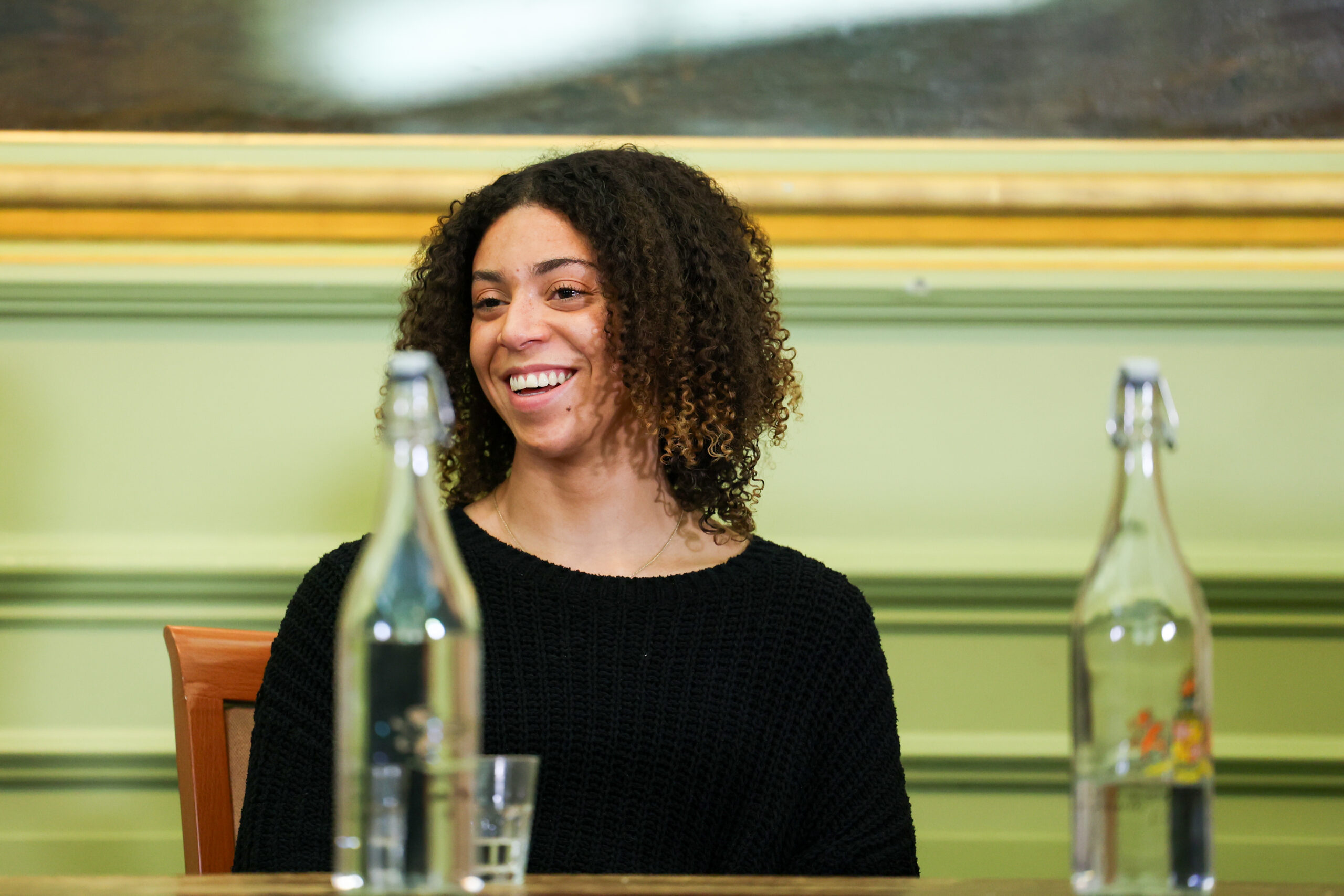
Darcy Bourne (C 20)
Darcy Bourne first made her mark as a teenager, helping Wellington’s U14 team to a National Schools’ Championship before progressing to the U16s. In 2016, she received the Higgins Youth Girls U16 Award, a national honour recognising not only her exceptional ability, but also her teamwork, determination and the leadership qualities that have defined her career ever since.
Whilst at school, she played in the Premier League for Surbiton Hockey Club, and represented the England U16, U18 and U21 Hockey teams, captaining each age group.
After leaving Wellington, Darcy continued her sporting journey, spending one year at Duke University in the US, on a hockey scholarship. After returning home, she continued her rise through the ranks of English hockey. Back playing for Surbiton, one of the country’s leading clubs, she quickly established herself as a standout forward. Her pace, vision and sharp attacking instincts earned her selection for the senior England and Great Britain Hockey teams, where she has become an increasingly influential presence on the international stage, having competed at the World Cup and the Europeans in recent years.
Darcy’s impact goes far beyond the pitch. Known for her desire to positively impact communities, her support of girls’ sport and her commitment to increasing representation, she has returned to Wellington to share her journey and speak about the challenges of being a woman in elite sport. For her, success is not defined solely by international caps or goals scored – it is about breaking barriers, opening doors and showing the next generation of athletes what’s possible.
In 2024, Darcy was nominated at the British Diversity Awards for Athlete Powering Positive Change. This recognition reflected not only her achievements on the field, but also her work with Raising Her Game, a charity which she founded, dedicated to empowering girls through sport and ensuring every girl has a pathway to develop a lifelong love of physical activity, no matter their background.
With her blend of skill, drive and leadership, Darcy Bourne continues to be one of the brightest talents in British hockey and a powerful role model for aspiring sportswomen everywhere.
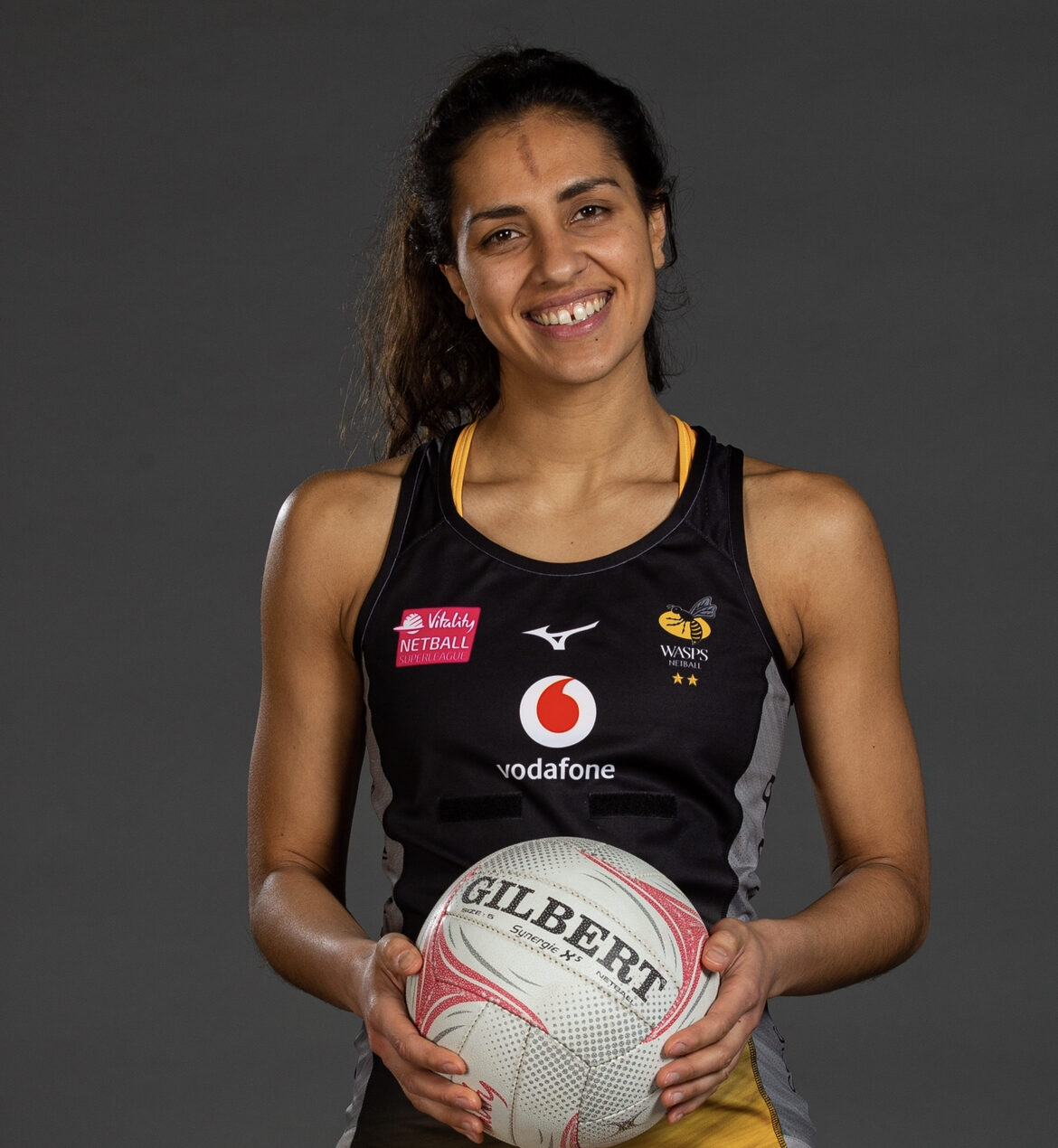
Sophia Candappa
Sophia Candappa is a former England International netballer with seven senior caps, having also represented her country at U17, U19 and U21 levels. Across a distinguished Superleague career, she played for Hertfordshire Mavericks, Loughborough Lightning, Surrey Storm and Wasps Netball, winning three championship league titles and captaining both Loughborough Lightning and Wasps.
Beyond the court, Sophia played a key role in establishing the Netball Players Association, working to improve support for athletes, particularly around maternity and career balance.
Alongside her netball achievements, Sophia has always prioritised her career in education. Since joining Wellington College in 2013, she has combined teaching with leadership, and is now the Housemistress of the Wellesley. She is also the proud mother of three children – Otis, Wren and Boen – and continues to inspire young people through her commitment to both sport and education.
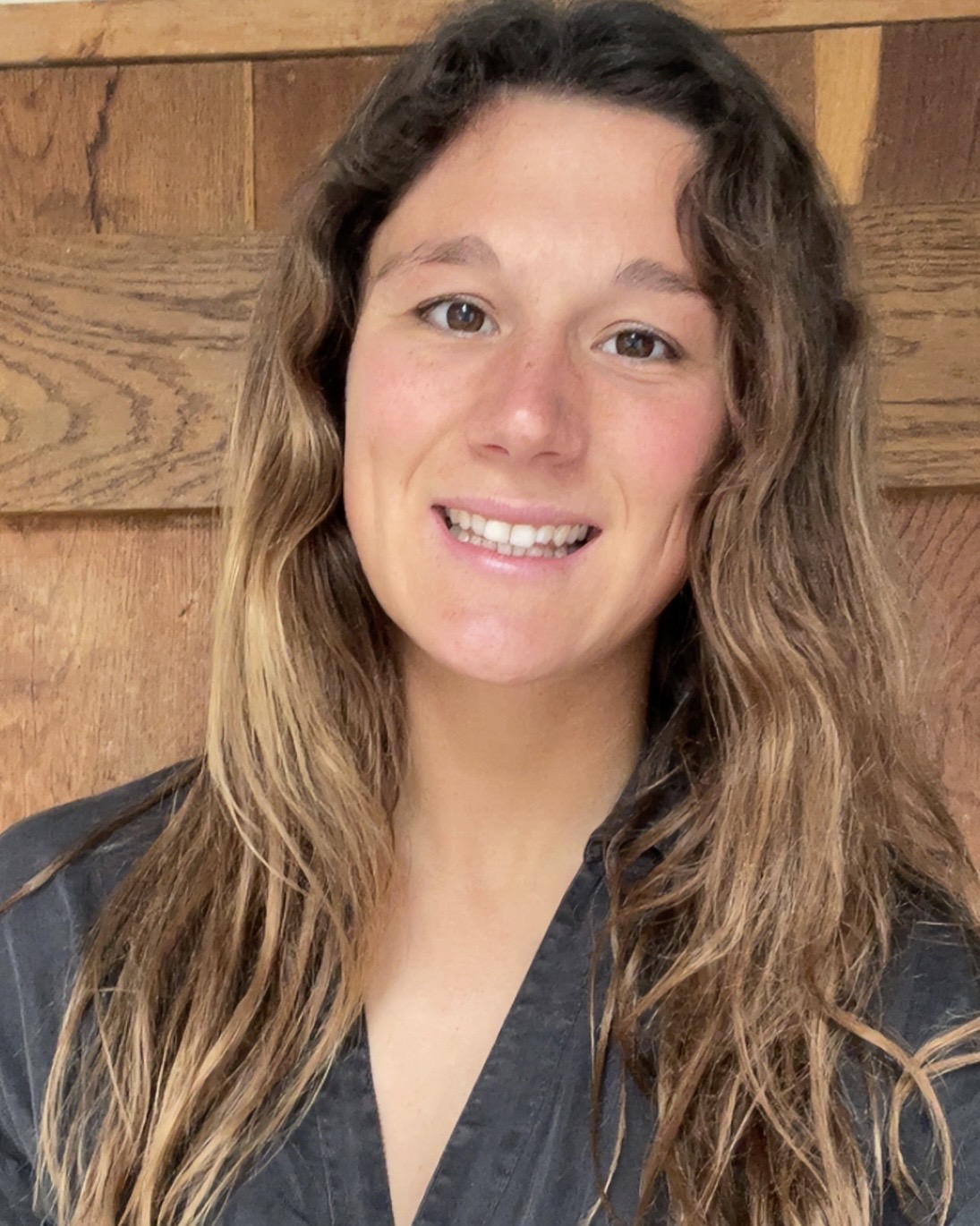
Sophie Ragg (Hn 13)
Sophie has never shied away from male-dominated spaces. From being the only girl in her U10 football team to becoming one of the pioneering women in the CCF Royal Marines and Field Gun, and training on Bigside with the 1st XV, she has consistently challenged boundaries. Alongside her Sixth Form friends, she co-founded Wellington’s first girls’ rugby team, leading them to victory in their inaugural 7s tournament. Despite having only trained for a month, the team triumphed at the Reigate 7s in pouring rain — a day Sophie remembers vividly as one of her happiest: exhausted, covered in mud, yet surrounded by inspirational women.
Just months after first picking up the sport, she was invited to a GB7s talent transfer camp ahead of the Tokyo Olympics and went on to earn selection for the England U18 7s squad. After graduating from Wellington, Sophie was recruited to Dartmouth College (US), where she captained the rugby team to three National Championship titles — an achievement made all the more remarkable by her perseverance through five knee operations. One of her proudest moments came when Dartmouth defeated Harvard in a sold-out stadium, clinching their third national title. Having won the same championship five years earlier, Sophie was struck by how much support for women’s rugby had grown, and she considers it a privilege to have led such a diverse, courageous and talented group of women.
At Dartmouth, Sophie majored in Ecology and Environmental Conservation, while also exploring Buddhist Philosophy and Meditation Theory. During her studies she worked in Ecuador and Costa Rica, collaborating with Bribri and Quechua communities. This experience ignited a lasting passion for indigenous knowledge systems and for re-imagining ways of living more harmoniously with people and nature.
Sophie’s rugby career continued professionally: she was drafted to the Pittsburgh Steeltoes in the Premier Rugby 7s, the first fully professional women’s 7s league in the US, before returning to the UK to play 15s with Ealing Trailfinders in the PWR. In 2024, she stepped away from professional rugby, recognising it no longer allowed her to live fully authentically. Inspired by the homelessness she witnessed while playing in London, she worked in a shelter in Ealing, before spending time on the Pacific coast of Central America as a sailing deckhand, where she learned sustainable living practices from coastal communities.
She is now based in Sydney, working as a sustainable agriculture and food sovereignty educator for a not-for-profit organisation. Off the field, Sophie has embraced surfing, throwing herself into the vibrant women’s surf community on Australia’s east coast.
Hannah Joseph (Ap 12)
Hannah is a passionate and accomplished netball player for Loughborough Lightning and the England Roses. Joining Lightning in 2011 and making her Netball Super League debut in 2013, she has since become a cornerstone of the squad, reaching over 200 appearances. Over 12 years with the team, she has played in multiple Grand Finals, helping secure Lightning’s first NSL title in 2021 and back-to-back championships in 2023 and 2024.
On the international stage, Hannah earned her first senior England cap in 2016 and has represented the Roses in series against some of the world’s top sides. A career highlight was being part of the 2021 squad that made history by winning the Taini Jamison Trophy in New Zealand.
Off the court, she is committed to developing the next generation of players in her role as Director of Netball at Uppingham School. Her time at Wellington College included captaining the first Senior Netball team to qualify for national finals — an early glimpse of the leadership and determination that have defined her career. A strong advocate for celebrating women’s achievements in sport, Hannah believes in showcasing the skill, leadership and impact of female athletes to inspire future generations and drive equality in the game.
 4
Changemakers
4
Changemakers
 4
4The desire to create a better world is embedded in Wellington’s DNA. Discover some of the many ways in which Wellington women have contributed to the wider community.
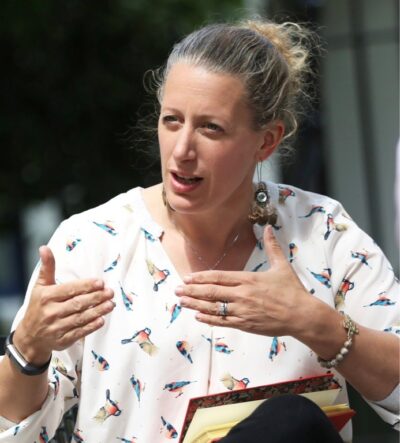
As you pause here, imagine the energy and vision of those who sought to make a difference. Seeking to make a ‘better world’ has always been part of the Wellington DNA. At this stop you will learn about the many ways that Wellington women have contributed to the wider community, shaping lives beyond those of the College grounds.
Meet the Pioneering Women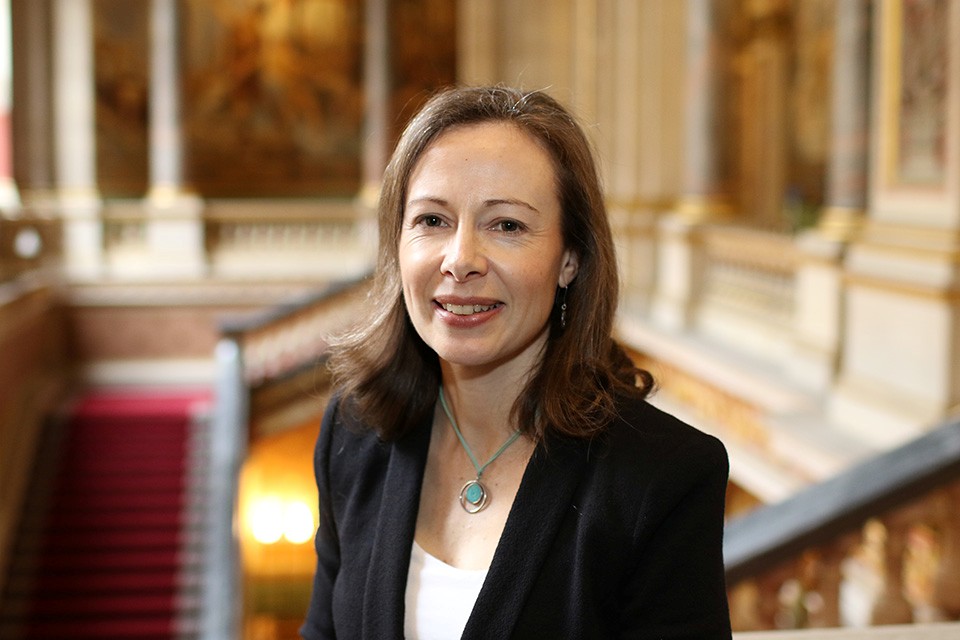
Marianne Young (Ap 89)
Marianne Young (née Darch) is the first OW woman to become a British Ambassador.
Marianne began her career in journalism, securing a graduate traineeship with The Times before moving into trade journalism. Specialising in the shipping industry, she covered the Latin American and Southern European markets and later led the publication’s Asia Bureau in Singapore for three years, in the late 1990s.
In her late twenties, an advertisement in The Economist inspired her to join the UK Foreign & Commonwealth Office (FCO) as a late entrant. After starting in the FCO’s Press Office in London, she moved to the Africa Directorate and took up her first overseas posting as Political Officer in South Africa, also serving as Deputy High Commissioner to the Kingdoms of Lesotho and Swaziland (as it was then known).
Marianne went on to serve as British High Commissioner to Namibia for four years before returning to London to head the FCO’s global Climate Change network in the lead-up to the landmark Paris Agreement. She later led the UK’s Economic Diplomacy work on the G7, G20 and OECD, and managed EU Exit projects following the UK’s EU Referendum.
In 2019, she was appointed Deputy British Ambassador to Turkey, serving for four years. Since August 2024, she has been the British High Commissioner to Tanzania.
Marianne believes it is important to celebrate women … ‘because we have come such a long way and are contributing to so many global goods and extraordinary achievements in wide-ranging and remarkable ways – and that should be celebrated and held up as examples to young women to show what is possible’.
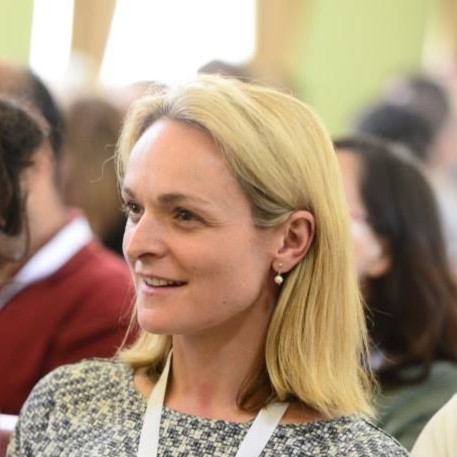
Dr Katy Granville-Chapman
Before joining Wellington, Katy served in the Army, where she saw first-hand how great leaders can transform both performance and wellbeing, even in the toughest conditions. This experience sparked her fascination with leadership and education, leading her to Oxford to complete her MSc and DPhil, and later to lecture on an Oxford MSc in Education.
Katy is an Associate Fellow and former Research Fellow of the Oxford Character Project; co-author of Leader: Know, Love and Inspire Your People; and co-founder of Global Social Leaders – a youth movement now active in more than 100 countries. Alongside Emmie Bidston, she is also a Senior Fellow of the Flourishing Network (Human Flourishing Program, Harvard) and co-chair of its Leadership for Flourishing Group. They co-directed the team that created the free online course, Leading with Character, a collaboration between the Oxford Character Project (University of Oxford) and the Human Flourishing Program at Harvard. Katy is co-editor of the forthcoming Oxford University Press book ‘Leadership for Flourishing’ and lead author of ‘Flourishing Teenage Brains’ with Sir Anthony Seldon and a Harvard neuroscientist (also forthcoming).
Sport has also been a defining thread throughout Katy’s life. A former GB synchronised swimmer and national swimming finalist, she now represents Great Britain in age-group triathlons, placing 16th at the World Championships, and coaches the triathlon team at Wellington.
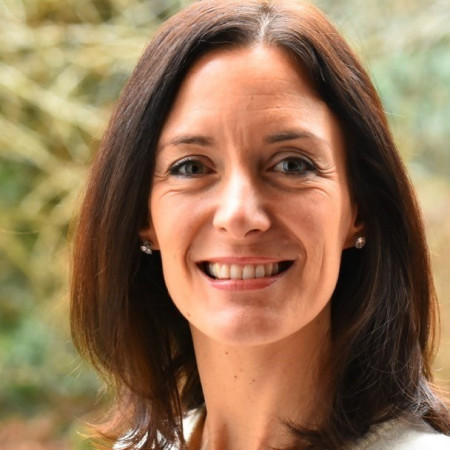
Emmie Bidston
Emmie Bidston is Housemistress of Elizabeth House, Wellington College’s new co-educational Sixth Form boarding house. She brings to the role a wealth of experience as an educator, leader and researcher, with a particular passion for developing character and leadership in young people.
Emmie studied Economics at the University of Cambridge before joining the UK Civil Service, where she worked across a range of areas from education to contingency planning. She has been Head of Economics at Wellington College and serves as Director of the Wellington Leadership and Coaching Institute, running conferences, coaching programmes and leadership training for both adults and pupils.
Beyond Wellington, Emmie is an Associate Fellow of the Oxford Character Project and, alongside Dr Katy Granville-Chapman, a Senior Fellow of the Human Flourishing Program Network at Harvard University. Together, they co-chair its Leadership for Flourishing Group and co-authored Leader: Know, Love and Inspire your People, which was named runner-up in the Business Book Awards for ‘Leadership Book of the Future’. They also co-directed the team that created the free online course, Leading with Character, a collaboration between the Oxford Character Project (University of Oxford) and the Human Flourishing Program at Harvard.
Through her teaching, research and leadership, Emmie continues to inspire and equip the next generation with the skills and values needed to flourish in life and leadership.
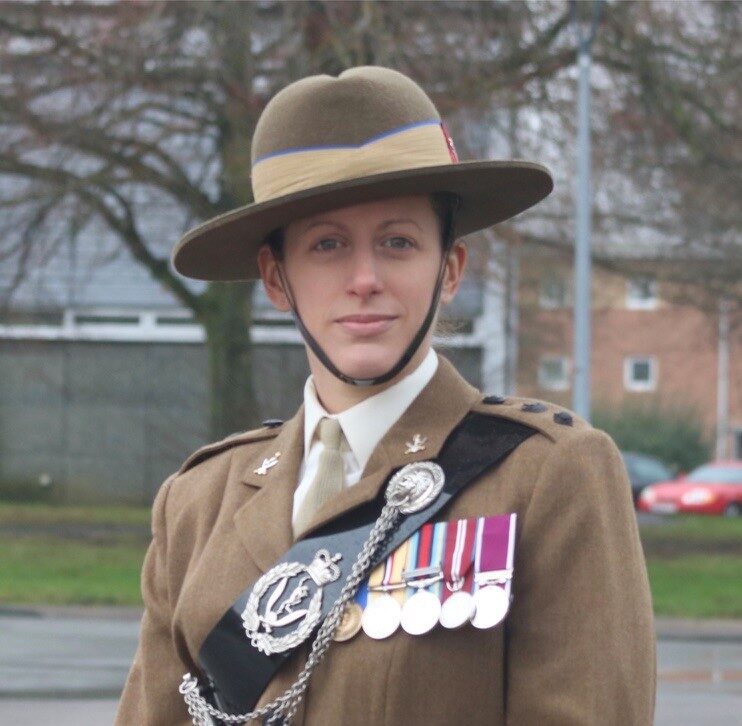
Colonel Hannah Colbeck (Ap 97)
Colonel Hannah Colbeck (née Stoy) was born in Littlehampton in October 1978. She attended Queenswood School and Wellington College. She was awarded an Army Sixth Form Scholarship, and was also a Lord Kitchener Scholar. She was sponsored by the Army through her degree at Newcastle University and was commissioned into the Territorial Army prior to commissioning into the Royal Corps of Signals in August 2001.
Early Regimental Duty saw her serving in a range of roles including Troop Command in 20th Armoured Brigade Headquarters and Signal Squadron (200), Operations Officer in 102 Logistic Brigade Headquarters and Signal Squadron (262), and Adjutant in 16th Signal Regiment. During this time she deployed to Kosovo on Op AGRICOLA, Iraq on Op TELIC and Afghanistan on Op FINGAL and Op TARROCK.
Following these roles, she conducted Intelligence Special Duties, which saw her return to Afghanistan on Op HERRICK. On promotion to Major, her initial appointment was as Military Assistant to the Director of Special Forces, and she then returned to 20th Armoured Brigade Headquarters and Signal Squadron (200) as Officer Commanding. She remained in the Brigade to become the Deputy Chief of Staff.
She attended the Advanced Command and Staff Course, after which she was appointed Senior Policy Advisor for the Middle East and North Africa in the Cabinet Office. In 2018, she took command of 30th Signal Regiment and the Queen’s Gurkha Signals. She was the first servicewoman to command a Regiment in the Brigade of Gurkhas, and at the time of writing remains so. During her command tenure, the regiment deployed in support of 13 different operations across the globe. Following command, she spent a few months at the Royal Military Academy Sandhurst, conducting Defence Engagement, after which she was promoted to Colonel. Her first appointment as a Colonel was Deputy Assistant Chief of Staff Personnel in Headquarters Field Army. She is currently the Chief of Staff to the Assistant Chief of the Defence Staff People Capability in the Ministry of Defence.
Overseas operations and commitments have taken her all over the world, including Kosovo, Iraq, Afghanistan, Bangladesh, Belize, Germany, Canada, Kenya, Brunei, Nepal and Jordan. She holds an MA in Defence Studies from King’s College London. She is an inaugural Fellow of The Forward Institute, a Fellow of the Westminster Abbey Institute, a Liveryman in The Worshipful Company of Vintners and a Freeman of The City of London. She was the Co-chair of the Army Servicewomen’s Network for several years.
Hannah is married to Charlie, who is also an Army Officer, and they have two children, Edward and Alice. She is a keen sportswoman and has played a variety of sports at representative level, including hockey and alpine skiing. She has competed in the Devizes to Westminster 125-mile Canoe Race, run the Welsh 1000m Peaks Race, and run a few marathons. She is a committed Christian.
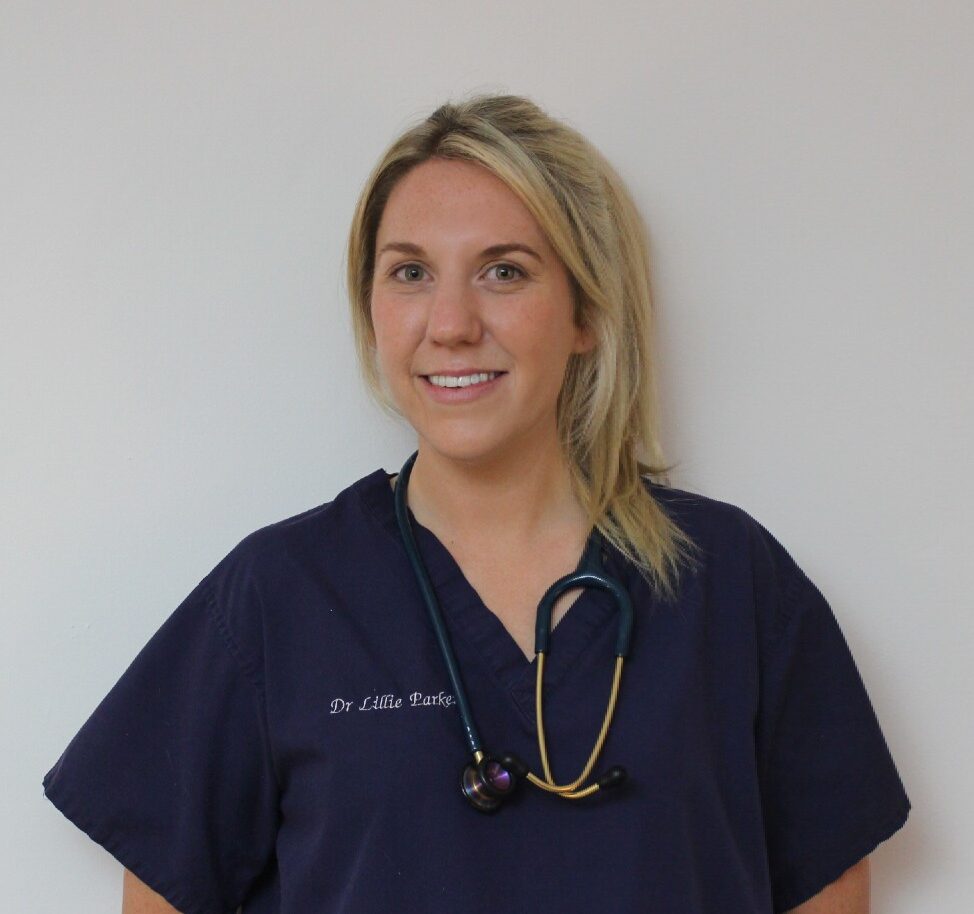
Lillie Parker (Hn 10)
Lillie Parker (née Cable) is a practising NHS paediatrician, currently sub-specialising in paediatric emergency medicine at University Hospital Southampton. She joined Wellington College for Sixth Form in 2008, one of only six Lower Sixth girls to join the Hopetoun as it transitioned from a boys’ to a girls’ House under the leadership of Judy and Glen Waugh. During her time at Wellington, she became the first girl to be a CCF Section Leader, where she was Head of the Naval Section. She was also the only girl on the College’s 1st Sailing team, gave the girls’ leavers’ speech, and converted the old photography studios into the school’s first installation art project.
After leaving Wellington in 2010, Lillie studied medicine at Southampton University, combining her academic training with her love of sailing. She graduated in 2016 and went on to specialise in paediatrics, now focusing on paediatric emergency medicine. In 2023, she took a year out of the NHS to volunteer internationally, including as a refugee camp doctor in Greece and teaching paediatric skills in Uganda.
Alongside her clinical work, Lillie has developed a social media platform, @doctor.lils, providing evidence-based paediatric health advice to parents. In just over a year, she has reached over 100k followers and is exploring collaborations with the Food Standards Agency and the development of a book on paediatric health.
Favourite memory of Wellington:
Participating in the 150th Anniversary celebrations for Queen Elizabeth II, parading as part of the Colour Party – a proud and unforgettable moment despite the intense drill practice.
Career highlight:
Securing her dream role sub-specialising in paediatric emergency medicine at a major trauma centre and expanding her horizons through voluntary medical work abroad.
 5
Changing Times
5
Changing Times
 5
5Wellington’s transition from a boys-only school to a vibrant co-educational setting involved change at every level. At the forefront of this change were a variety of women, who worked boldly in uncharted territory. We also want to recognise the many girls and women who were part of those ‘firsts’ at Wellington.
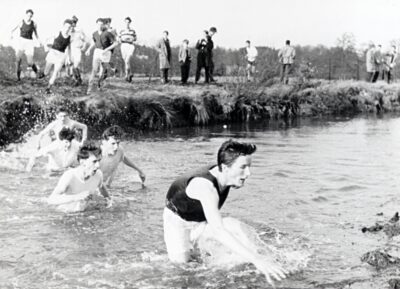
‘From the perspective of a student who joined the school in the Third Form in a mostly boys’ house (the Talbot) I have a lot of admiration for the first girls, because even with my year of girls having older students from the Orange and Wellesley come in, alongside a great group of older boys in House and the rest of our year, it must have been incredibly hard and sometimes quite scary to join in such a male-dominated situation.’ Izzy M (U6 T)
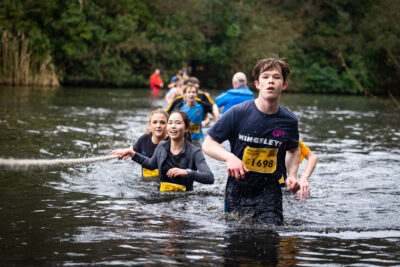
Please consider the scale of transformation — from a boys-only school to a thriving co-educational community. This marker is located with the historical Chapel behind and down the slope are the newest Houses, including Elizabeth House – blended into their surroundings, balanced with nature. From the first girls to join the CCF to the first Houses to change from boys to girls, this change touched every aspect of College life. Read some of the stories and discover how some of the foundations for the Wellington we know today were laid.
Meet the Pioneering Women
How Wellington boarding houses changed to support co-education
The first girls’ House at Wellington, the Apsley, opened for day students in 1975 in what is now the Wellesley, moving to its present home and becoming a boarding house in 1978. During its first 20 years, the Apsley never had a female HM, although informally, HMs’ wives played an important role in the House. In 1996, Mr and Mrs Burns were appointed as the first joint HMs.
The Apsley remained Wellington’s only girls’ House, for Sixth Form only, until 2006, when girls were first admitted to the lower years. The newly built Orange welcomed the first Third Form girls, the remaining Orange boys being transferred to the Beresford, and Linda Raabe-Marjot became Wellington’s first sole female HM. The following year, the Combermere also changed from a boys’ to a girls’ House and the Wellesley, closed in 1941, was re-created as a girls’ day house.
Also, in 2007, the Hopetoun and Anglesey began the process of transition from boys to girls, leading to the Houses effectively being co-educational for a few years as the last cohort of boys moved up the years.
In 2014, the Apsley began the move from Sixth Form to all years, admitting its first Third Form. They were accommodated in the ‘Long Corridor’ area of the main College until the Apsley had been reconfigured to house more girls.
The Hardinge played an important role in the journey to co-education, taking in boys from the Hopetoun and Anglesey as those Houses changed to girls. By now a Sixth Form-only House, the Hardinge itself accepted girls in 2015 and for five years was co-educational before reverting to girls only.
In 2021, the Talbot began the process of transition with its first intake of girls. In 2025, the conversion to a girls’ House will be complete. In September 2024, the newly built Elizabeth House opened to Sixth Form boys and girls, marking a new era of intentional co-education in a Wellington House. The College achieved a 50% split between boys and girls in 2025.
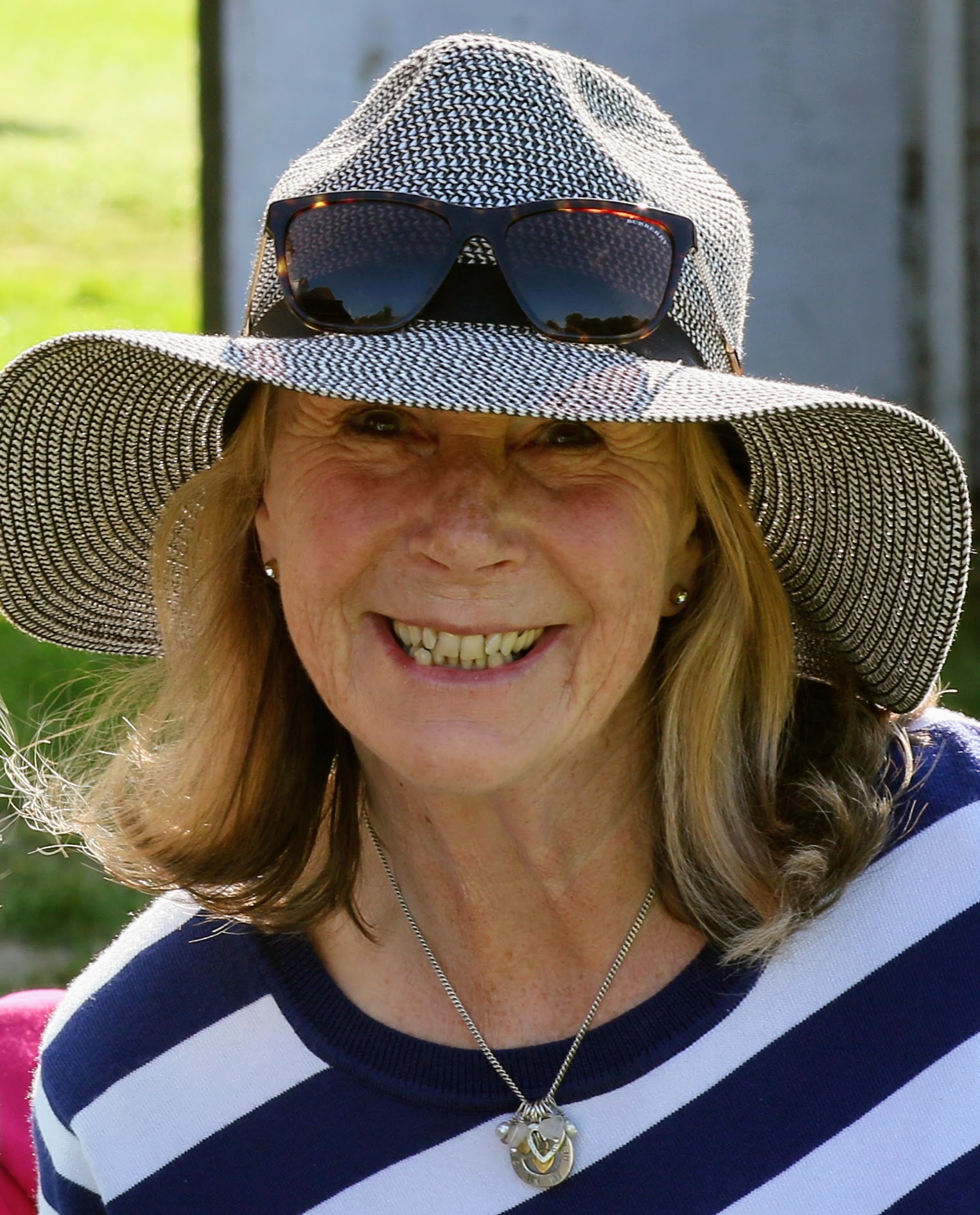
Judy Waugh
For 33 years, Judy was at the heart of Wellington life, playing a vital role in the College’s journey from a predominantly male institution to the co-educational community it is today. When she and her husband arrived in 1974, the first girls were either teachers’ daughters, local pupils or boarders staying with staff families. Judy quickly became a trusted ‘pastoral mum’ for those pioneers. When the old Sanatorium was converted into the Apsley boarding unit, she was invited to serve as under-Tutor while also developing her aerobics business. With few sporting opportunities available, she introduced aerobics classes for the girls, creating a new outlet for fitness and friendship.
The opening of the Sports Hall marked a turning point. Judy expanded Apsley aerobics to include boys, breaking new ground for co-educational sport. A particular highlight came in 1993, when she led a mixed aerobics session for the official opening by Her Majesty The Queen – an event thoroughly enjoyed by all, including The Queen herself.
In 1998, when her husband was appointed Housemaster of Hopetoun, Judy became an integral part of the team. Alongside teaching PE and PSHE at a nearby school, she gained further pastoral experience as Assistant HM of a girls’ boarding house. When Wellington committed to full co-education, she was appointed Hopetoun Housemistress for the girls, working in partnership with her husband to guide the House through its pioneering transition.
Taking the House through this change was as much of a learning curve for staff as it was for pupils. It was an innovative idea to trial a co-ed House, requiring a huge leap of faith – especially from the parents of the first ten 13-year-old girls who joined in 2007. Change is never easy, but the boys embraced the challenge, working with the girls and staff to move the House forward. Both sexes earned each other’s respect and together they built the values that would ultimately define Hopetoun.
Judy’s career highlight came in those years: being part of the transition journey alongside those pioneering girls and, five years later, watching them leave Chapel as true Wellingtonians, having achieved and contributed so much. Her favourite memory captures the spirit of the moment: on the very first day, the Head of House turned to his Housemaster and exclaimed, “Jeez, Sir, can they talk!” A remark of humour, but also a sign of how far the College had come.
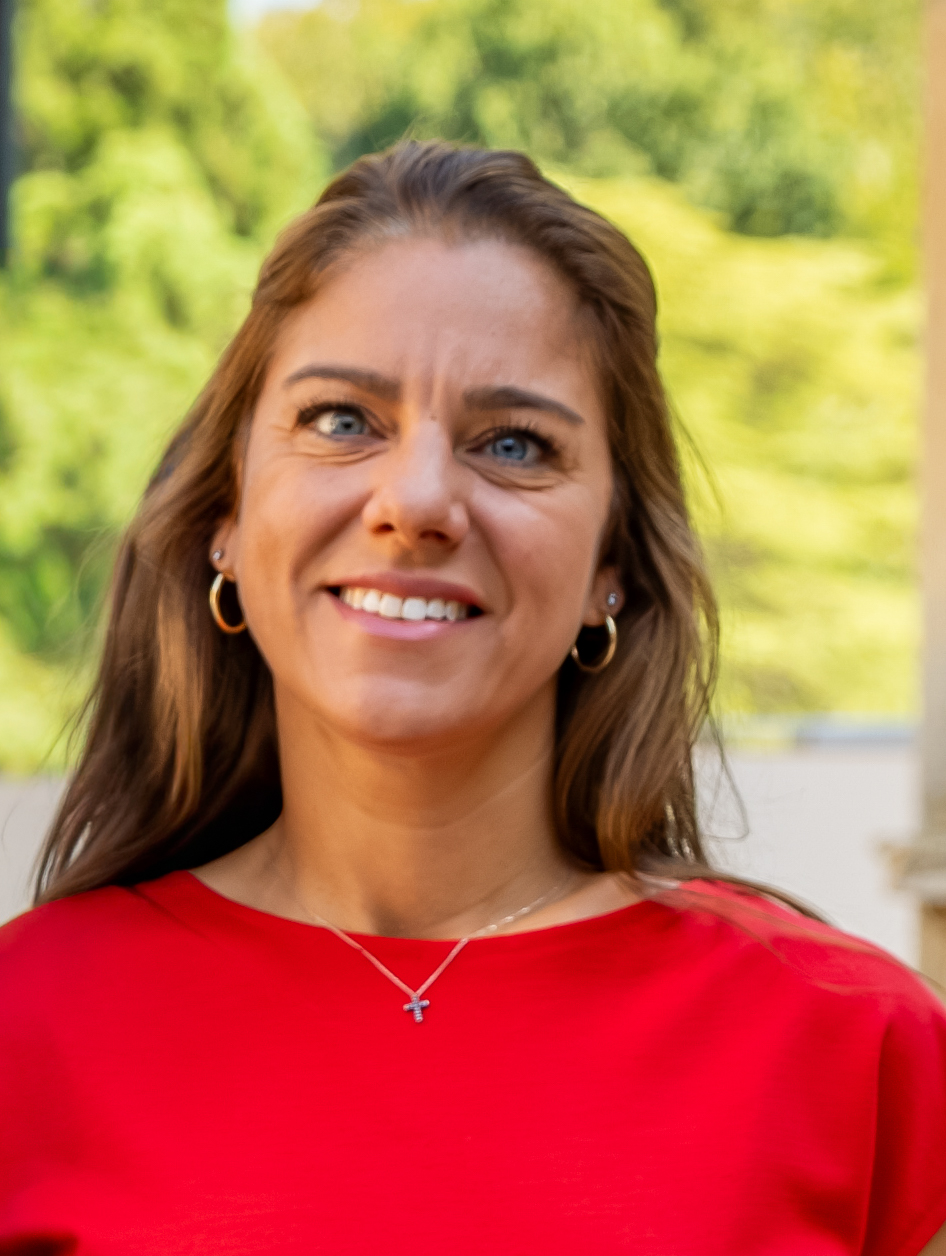
Rebecca Ross
Rebecca (Bex) Ross joined Wellington College in 2005 with a clear mission: to champion co-education and transform the landscape of girls’ sport. Having previously worked with Sir Anthony Seldon at Brighton College, she brought both vision and determination to the task. Her ambition was bold – to position Wellington as a national leader in girls’ sport – and the early years were spent laying the foundations for the thriving sporting culture that exists today.
Sport has always been central to Bex’s life. A true all-rounder growing up in Kent, she eventually specialised in hockey, representing South Australia before studying at Exeter University. After a short career in publishing in London, she discovered her true vocation in teaching. Alongside her teaching career, she reached the pinnacle of her sport, representing England and securing a career highlight in 2019 when she won the Masters Hockey World Cup in Spain.
Her leadership journey has been equally distinguished, spanning roles as Housemistress at Benenden, Deputy Head Pastoral, and now Senior Deputy Head at Wellington College Prep. Across these positions, her unwavering commitment has been to building confidence, resilience and opportunity for young people.
Reflecting on her time at Wellington, Bex highlights the extraordinary moment when girls’ sport truly began to take off. Watching those first cohorts embrace confidence, ambition and pioneering spirit remains one of her most rewarding experiences. Mentored by Lucy Pearson, whose vision continues to inspire her, and shaped by her time as Assistant HM in the Blucher under Mark Boobbyer, she treasures the sense of spirit and belonging that defined those years.
For Bex, a career highlight has been helping to shape Wellington’s sporting reputation, particularly in those formative early years of girls’ sport. Seeing pupils go on to achieve national recognition across a wide range of disciplines, knowing those pathways were forged through resilience and ambition, remains one of her proudest achievements.

Lissy Macleod (W 12)
Lissy Macleod is a professional cricketer who attended Wellington College from 2007 to 2012, as part of the second year of girls who started right from Third Form. She made history as the first girl to play in a boys’ A team, a milestone that reflected both her talent and determination, and marked an important step in the development of girls’ sport at Wellington. Looking back, she recalls that while there were too many favourite memories to mention, what stands out most are the people who shaped her experience – and, perhaps more light-heartedly, her love for the legendary game ‘Be the Duke’.
After leaving school, Lissy joined the Southern Vipers and was part of the winning squad in the inaugural Kia Super League, the UK’s first professional domestic women’s cricket competition. This breakthrough moment marked the beginning of a new era for the sport in England, and Lissy’s involvement underlined her role in its evolution.
As women’s cricket transitioned from a semi-professional to a fully professional structure, she continued to play at the highest level. She competed in The Hundred, one of the game’s most high-profile formats, which remains one of her proudest career highlights and, in 2024, was a member of the Sunrisers side that lifted the Rachel Heyhoe Flint Trophy.
Today, Lissy represents Essex in the new tiered structure of the professional women’s game while also working as an English teacher at Felsted School, balancing her sporting career with her passion for education.

Linda Raabe-Marjot
Linda Raabe-Marjot was the first woman to be a Housemistress in her own right at Wellington College. She was educated at Chichester Girls’ High School before going on to St Edmund Hall, Oxford, where she studied French and German. She later completed her PGCE at the University of York, beginning her professional life as a teacher in the state sector — a period that not only affirmed her talent for teaching but also introduced her to her future husband, John.
After discovering her aptitude for education, Linda made an unexpected career change. At a time when opportunities were abundant, she was offered sponsorship by five major City law firms, eventually choosing Linklaters, who funded her through two years at the Guildford College of Law. During this time, she and John welcomed their two sons, Oliver and Alistair, and thanks to excellent childcare and John’s unwavering support, Linda successfully completed her training contract and qualified as a commercial property lawyer.
While she found the legal world stimulating and challenging, Linda soon realised that her true fulfilment lay not in boardrooms and contracts but in classrooms and the energy of young people. A period of reflection led her to return to education as a Lecturer in Law at the College of Law in Guildford, where she later became a Senior Lecturer. This reaffirmed her conviction that teaching was where she belonged.
Six years later, a phone call from a friend working at Wellington College set her next chapter in motion. After meeting with the Director of Studies, Linda joined Wellington to teach French and German. Her career there blossomed: she became Assistant HM at Apsley and later, under the leadership of Sir Anthony Seldon, was appointed Housemistress of the Orange.
Her six years leading the Orange were, in her words, “amazing” — a time of creativity, camaraderie and growth. Both her sons attended Wellington during this period and went on to Oxford University, while Linda herself oversaw the development of a thriving and cohesive girls’ house community built on kindness, respect and pride. Linda regards founding and leading Orange House as the hardest and most rewarding challenge of her career. Starting with 68 girls across multiple year groups, she worked tirelessly to build a sense of unity, pride and shared values. The result was a vibrant and supportive community that remains one of her proudest achievements.
After her time at Wellington, Linda and John fulfilled a long-held dream of teaching abroad, taking up posts at St Gilgen International School in Austria, where she ran a girls’ boarding house. Returning to the UK, she joined St Edward’s, Oxford, as Head of German and Teacher of French, before retiring to enjoy life split between Oxford and France.
Favourite memory from Wellington: Too many to choose just one. Linda especially treasures her time in Orange House — preparing for the House Art Competition (which Orange won three years in a row), rehearsing for Interhouse Singing, and celebrating at House Christmas parties. The great occasions such as Speech Days also hold a special place in her heart.
 6
Artistic Talents
6
Artistic Talents
 6
6The women of Wellington have illuminated the world of the arts with their passion and creativity – from conductors to musicians, singers to dancers, artists to actors. Here, we celebrate their talents.
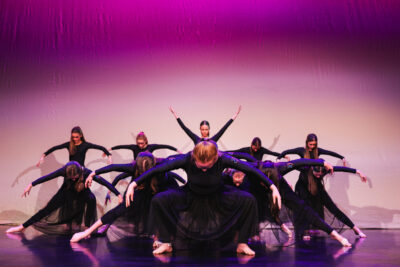
The creativity of Wellington women is all around you. As you read, picture the stages, studios and concert halls that have been filled with their talent and passion. Situated here are two of our main performance spaces, the GWA and the CLT, bridged by a light-filled space highlighting the work of our young artists. Nearby, visitors can also see Pinar Caouki’s wonderful statue, ‘United’, which celebrates the rich diversity of Wellington’s co-educational life.
Meet the Pioneering Women
Ellie Bamber (W 15)
Ellie Bamber is a British actress whose film work includes Animal Friends, The Face of Horror, Moss & Freud, William Tell, Words of War, Tom Ford’s Nocturnal Animals, Red, White & Royal Blue, Pride & Prejudice & Zombies, and Disney’s The Nutcracker and the Four Realms.
On television, she has starred in Willow (Disney+), The Serpent (BBC/Netflix), The Trial of Christine Keeler (BBC) and Les Misérables (BBC).
Her stage credits include The Lady from the Sea at the Donmar Warehouse, High Society at The Old Vic, and Aspects of Love at the Menier Chocolate Factory. She will next appear in The Line of Beauty at the Almeida Theatre.
Ellie attended Wellington College as a Drama Scholar in the Sixth Form and fondly remembers making lifelong friends during her time here.
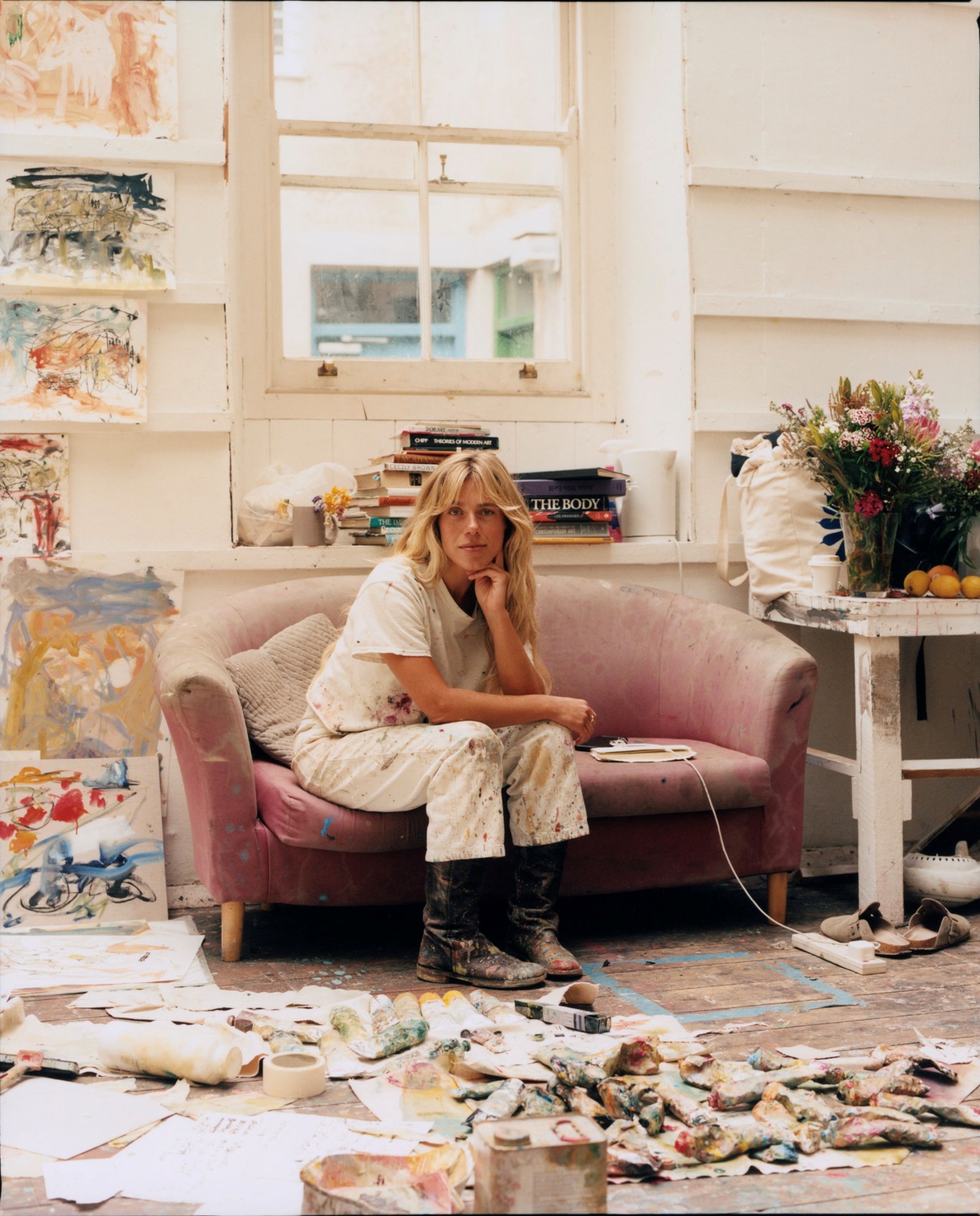
Gina Kuschke (Ap 10)
Gina Kuschke (b. 1992, Cape Town) is based in London and holds a BA in Art History from the Courtauld Institute of Art (2014) and an MA in Painting from the Royal College of Art (2024). She was previously the recipient of the Art scholarship at Wellington College. Awarded a two-month residency with the Porthmeor Residency Programme, Borlase Smart John Wells Trust, St Ives, Cornwall in spring 2025, and shortlisted for the New Blood Art Prize in 2024 (nominated by the RCA Head of Painting). Gina Kuschke’s work has been exhibited internationally and is held in private and public collections across the USA, UK, EU, UAE and MX, notably The Nixon Collection (London), The Iris Collection (Mexico) and The Groucho Collection (London). Recent exhibitions include TERRA II, Apsara/Aora, Burgundy, FR (2024); Scene V: Pas De Quatre, Matt Carey-Williams, London, UK (2024); Takes on the Sublime, Night Café, London, UK (2025), culminating in a two-day sound installation that she composed and produced; In Dialogue With Ilse D’Hollander, Verduyn, Brussels, BE (2025); Art Brussels, Brussels, BE (2025, Night Café, ‘Invited Booth Prize’ winner); The Eagle, South Parade, London, UK (2025); and previously, a solo show at Soho Revue, London, UK (2019).
Her favourite memory of Wellington is the Art Block, which first gave her a sense of creative belonging. She remains grateful for the international exhibitions, residencies and communities that continue to shape her artistic journey. Yet, the greatest reward lies in the everyday act of painting itself. For Gina, her studio is both anchor and reminder – that no matter how far her work travels, the simple, persistent act of paint always brings her home and reaffirms that this is where she belongs.
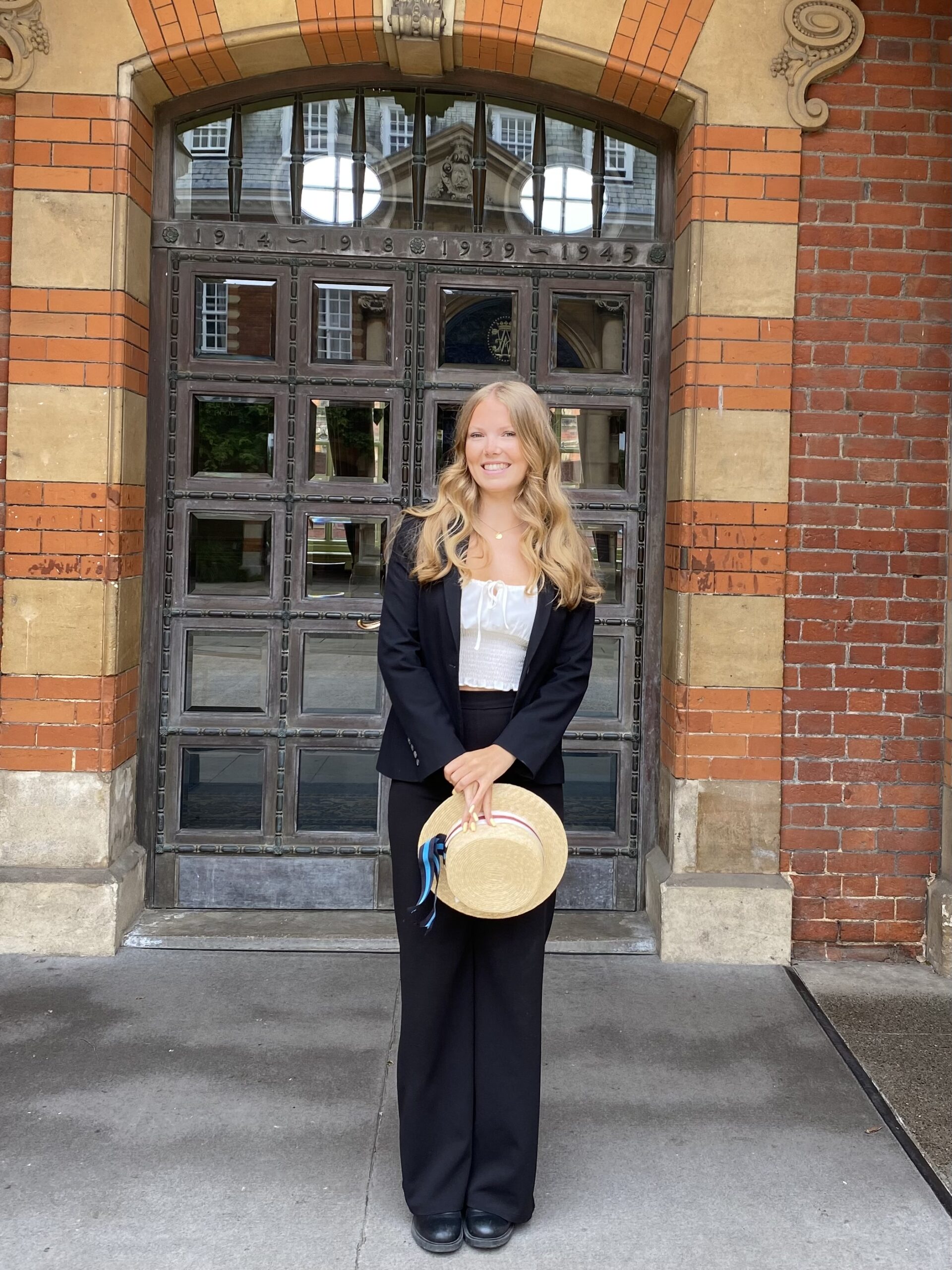
Grace Harvie (W 23)
Grace Harvie joined Wellington in 2018 and quickly embraced the opportunity to pursue a wide range of academic and creative interests. At A Level, she studied English, Philosophy & Religion, and Art, and it was during this period that she came to value not simply certainty of ambition, but the power of making authentic choices and dedicating herself to them. Graduating in 2023, she went on to study English and Comparative Literary Studies at the University of Warwick, while continuing to develop her artistic practice. In 2024, her hyperrealistic oil paintings were noticed by a local businessman, leading to the creation of a debut series, The Seven Deadly Sins, which was exhibited at the grand opening of Kaizen Fine Art Gallery alongside established artists such as Richard Scott, Timmy Mallett and James Kerry Baldwin. Since then, she has sold originals and prints, taken commissions and continued to develop new work while pursuing her degree, growing into an accomplished young artist and entrepreneur. Looking ahead, she plans to complete a Master’s in Marketing & Strategy, furthering her ambition to combine creativity and business with equal passion. Among her fondest memories of Wellington is the 2023 Speech Day Art Exhibition, where the final portfolios of her year group were displayed – a moment that reflected not only the variety of talent and style among her peers, but also the support and encouragement of her teachers that helped shape her own artistic voice.
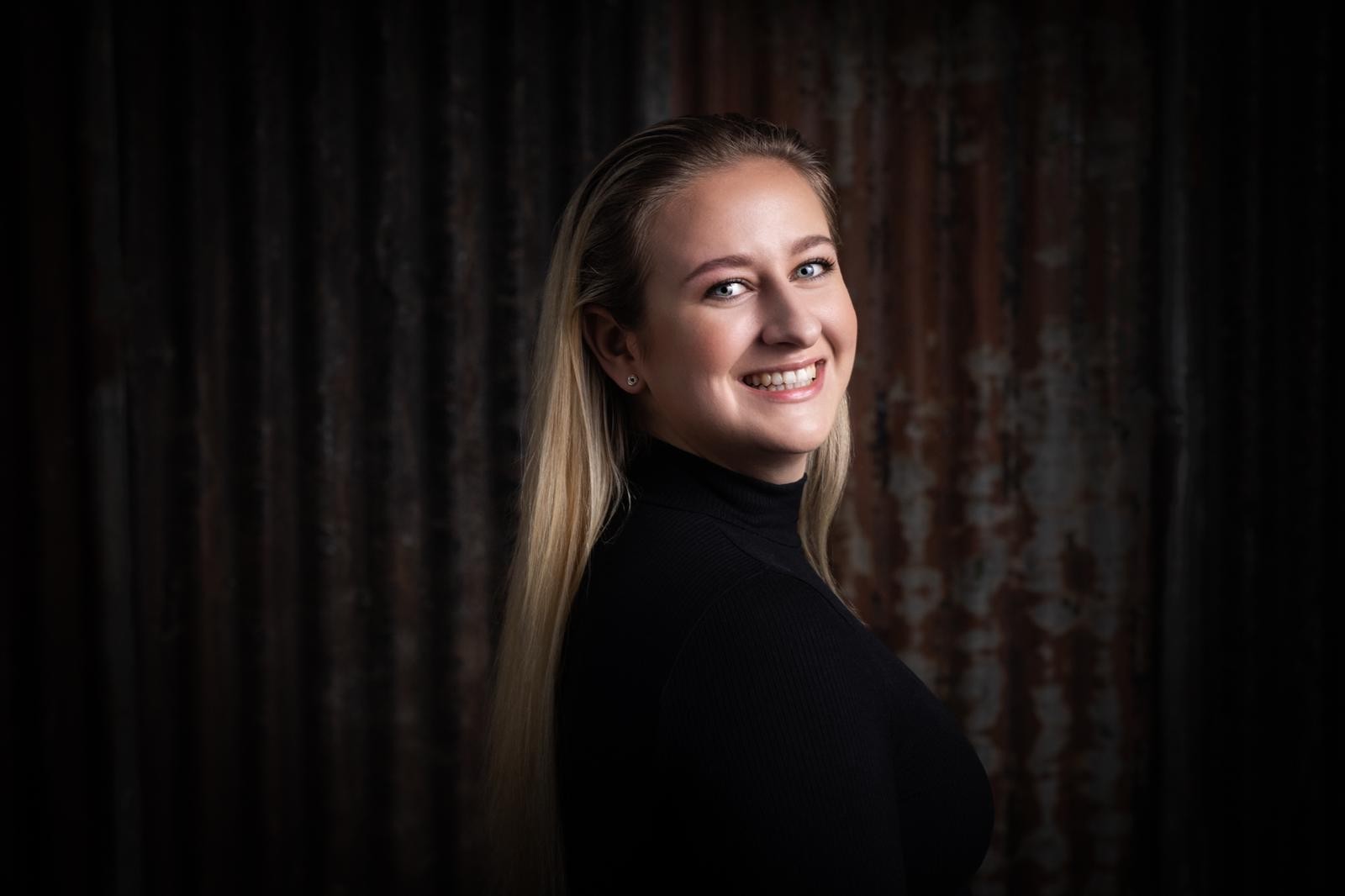
Samantha Ann Quillish (Ap 13)
Samantha Ann Quillish is a full lyric soprano performing across both operatic and classical genres. A graduate of the Opera School at the Royal Academy of Music and former young artist at the National Opera Studio, she began her studies at the Royal Conservatoire of Scotland before further development through Opera Prelude and the Royal Opera House mentorship scheme.
She has sung widely across the UK with Welsh National Opera, Scottish Opera, Opera North and English National Opera. Her repertoire includes the title role in Tchaikovsky’s Iolanta, Papagena in Die Zauberflöte, Nina in Cherubin, Iris in Semele, Mistress Page in Vaughan Williams’ Sir John in Love with British Youth Opera, as well as scenes from The Bartered Bride, Die Freischütz, Fidelio, Orfeo ed Euridice, Le Nozze di Figaro, and The Rake’s Progress. Samantha has twice appeared with the Glyndebourne Chorus in both their summer and autumn festivals, including at the BBC Proms at the Royal Albert Hall.
In concert, she has performed as soloist in Verdi’s Requiem, Strauss’s Four Last Songs, Mahler’s Symphony No. 2 and Vivaldi’s Gloria. She has given multiple recitals at Wigmore Hall, one of which toured to the Leeds Lieder Festival, and performed operatic scenes at Cadogan Hall. Competition successes include winning the VIII Odin International Music Competition, placing second in the Mimas International Music Competition, and reaching the final of the Emmy Destinn Competition. She is currently transitioning from lyric soprano to full lyric/young Wagnerian soprano, a stage of her career that she describes as both creatively exciting and deeply enriching.
Her fondest memories of Wellington include singing the solo in Rule Britannia at the Royal Albert Hall with the College orchestra and choir – an unforgettable moment of joy and pride – and the camaraderie of performing with the Wellingtones a cappella choir. Among her career highlights, she cites her debut at Wigmore Hall and performing with the Glyndebourne Chorus in Ethel Smyth’s The Wreckers, both of which marked important steps in her professional journey.
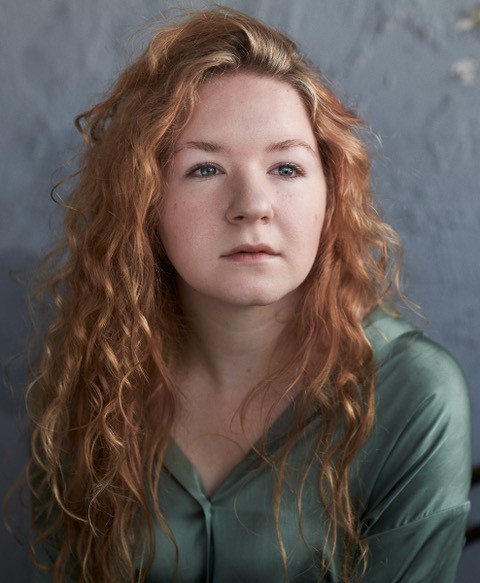
Hayley Canham (O 20)
Hayley Canham is a 23-year-old actress, musician, composer and writer whose career began at the age of nine in Matilda the Musical. She has since worked across stage and screen with acclaimed directors including Nicholas Hytner, Otto Bathurst and Stephen Daldry.
An emerging voice in musical theatre, Hayley was spotlighted at BEAM, the UK’s largest showcase of new work, and held a writing residency at Birmingham Hippodrome. Her debut work, Medea the Musical – a rock concert adaptation of the Greek tragedy – premiered at Wellington College in 2019 and went on to successful runs in Cambridge and at the Edinburgh Fringe. Now licensed and translated in two European countries, it has also featured in concert at the Royal Opera House. Her upcoming one-woman show, The Poetess, about the life of Sappho, is set to premiere in 2026 with support from DEM Productions.
As a singer-songwriter under the stage name cannibal, Hayley reached the quarter-finals of The Voice Kids in 2017, released the charity single Mars in 2018 to raise money for Young Lives vs Cancer, an organisation which supported Hayley and her family during her treatment for AML. She released her first full-length, self-produced album Public Displays of Affliction in 2023, amassing over a million Spotify streams and multiple BBC Radio plays.
Hayley is also an alumna of Queens’ College, Cambridge, graduating with a first-class degree in Classics and winning the Members’ Essay Prize for her final-year thesis.
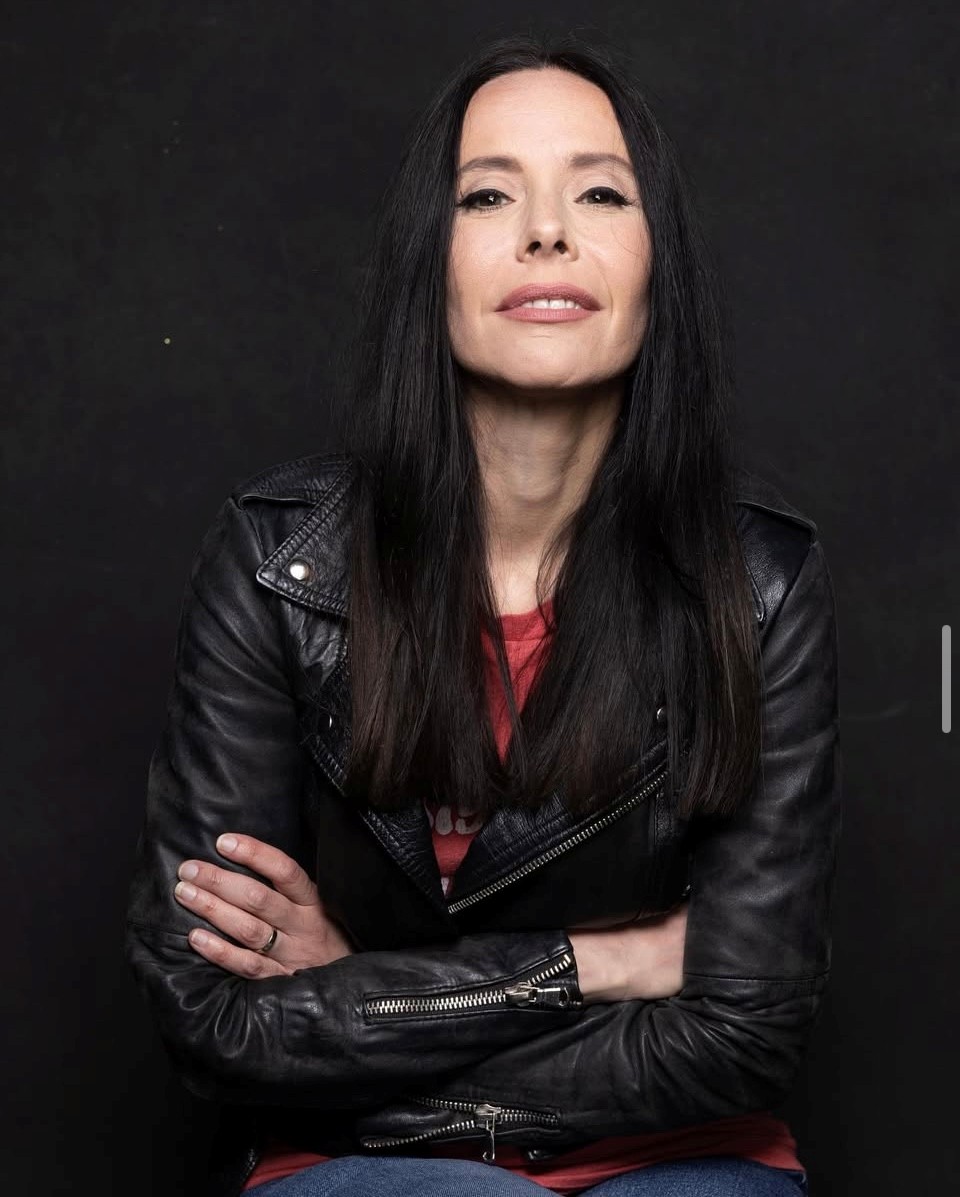
Nerina Pallot (Ap 92)
Nerina arrived at Wellington College on a Music Scholarship from Jersey, joining a small cohort of girls in what was then a predominantly male environment – an experience that proved excellent preparation for the unpredictable world of the entertainment industry. The school’s Theatre and Music departments became creative havens, and the encouragement of inspirational teachers such as John Holloway and Stefan Anderson played a pivotal role in building the confidence to perform.
After Wellington, she studied Art and Music in London and, while still at music college, signed to EMI Records in 1995. Her second album, released in 2006, brought commercial success, Top 40 hits and nominations for both a Brit Award and an Ivor Novello Award. Since then, she has toured extensively across the UK and Europe, released multiple albums and written and produced for other artists, including Kylie Minogue.
A career highlight came in 2024 with her biggest headline show to date at the London Palladium – made even more special by the support of fellow Apsley girls from the class of ’92, whose enduring camaraderie began during their formative years at Wellington.
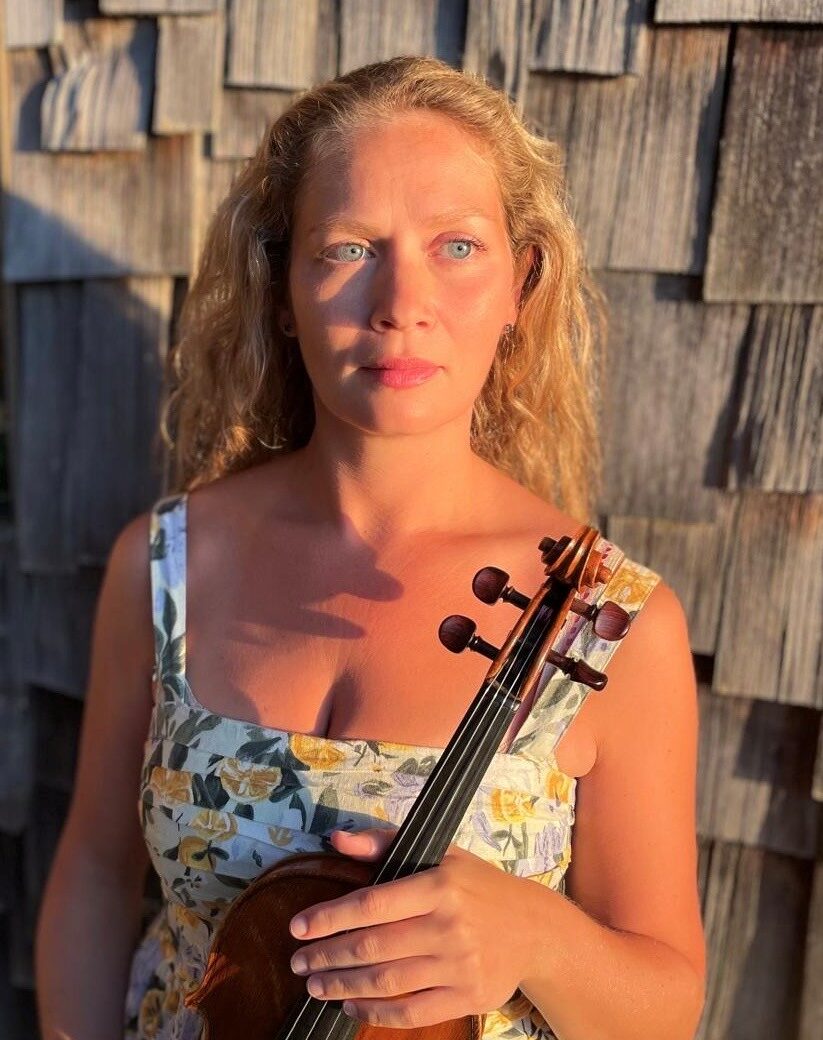
Claire Sledd (C 08)
Violinist Claire Sledd left her hometown of Bremerton, USA, at 16 to study at Wellington College on a music scholarship. She recalls the moment she first stepped into Wellington’s rose-covered music building as transformative, opening her eyes to a world where music was valued and could be a career. Yet her early years at Wellington also taught her resilience. “I think society raises boys to believe that they are important, that their opinions matter, and that their talents will be rewarded. This is obviously the right mindset to raise children with; but for millennia, it hasn’t applied to female children. I began my studies at Wellington in 2007, the first year that female students were admitted in all years, and I have to say that a number of the boys were outwardly hostile to female students, especially when they perceived a threat to their status. It takes time and huge effort to overcome those preconceptions.” Those experiences shaped her determination and confidence to pursue music at the highest level.
Claire went on to study at the Royal Academy of Music, earning a Master’s with distinction in 2014, and later completed a Postgraduate Advanced Diploma with distinction at Trinity Laban. She trained with leading musicians including Maxim Vengerov, Clio Gould, and Sir Simon Rattle, winning prizes at the Peter Morrison, Windsor and Maidenhead, and Schlern International Music Festival competitions.
Her career has since taken her across the world. In 2017, she joined the Southbank Sinfonia, performing the Tchaikovsky Violin Concerto in Italy and chamber music across Europe, before becoming a member of the BBC Philharmonic Orchestra in 2018. She also plays regularly with the BBC Symphony Orchestra, the Philharmonia, and the Hallé, with recent tours taking her to Austria, China, and South Korea.
Among many highlights, Claire treasures her first performance at the BBC Proms in the Royal Albert Hall. Though she has played for huge audiences at Eurovision, the EMAs, and international festivals, the Proms remain a thrill every year and one of her favourite parts of her career.
When not performing, Claire enjoys reading, wild swimming and hiking — recently completing a three-week trek in Nepal and now planning her next adventure to Shangri-La, China.
 7
Trailblazers
7
Trailblazers
 7
7Take a moment to honour the women who stepped into uncharted territory. Many of those featured along this trail could be considered trailblazers, but here we especially highlight those women who first entered male-dominated areas, either at Wellington or in the wider world. These women challenged norms, broke new ground and made it easier for those who came after them. Their courage, resilience, leadership and innovation shine as guiding lights on this trail.
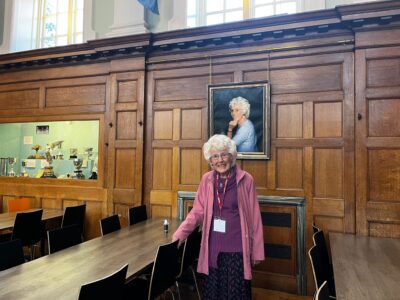
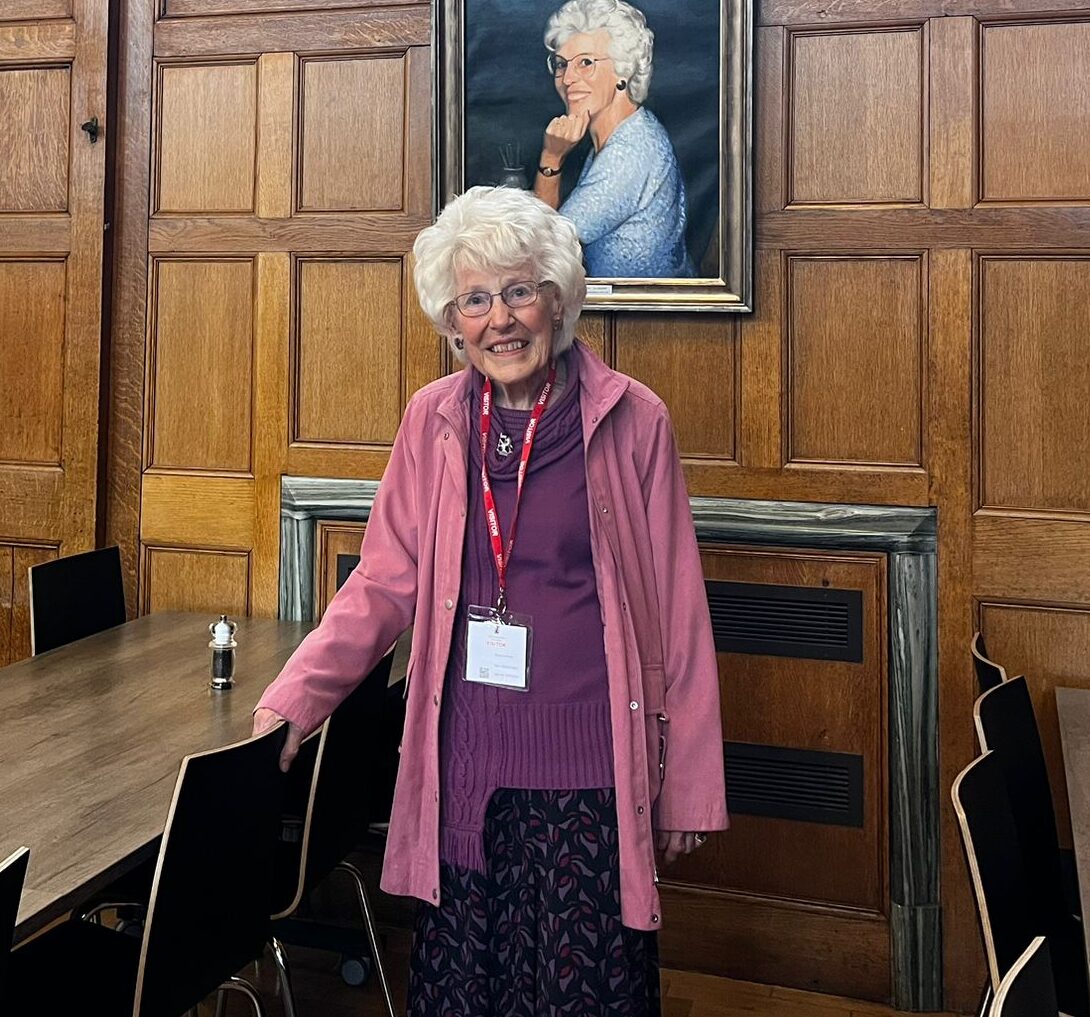
Pauline Williams
When Pauline Williams was appointed to Wellington by Frank Fisher in 1978, she stepped into uncharted territory as the first woman to join the Common Room. Frank asked how she would like the boys to address her, suggesting ‘Sir’ to fall in line with tradition. Pauline, with characteristic clarity, declined. “Mrs Williams will be fine.”
‘It was important to me to attend all meetings and events for Common Room and essential that I had done all my ‘homework’ so I had all the knowledge that was necessary and would not be caught out! Initially, the wives were very up in arms about my going into CR as it had always been a male-only area and it was thought quite strongly that I should join them for lunch in the dining room – the fact that I was teaching in their lunchtime did not seem to penetrate. There were many areas where I had to put down ground rules. I became the first woman under-Tutor, in the Talbot. I was in charge of the wardrobe in the theatre and it was interesting how my sewing room was visited by students and staff who needed counselling.’
Pauline went on to serve as Treasurer of the Common Room, quickly realising how unfamiliar many staff were with financial matters. Her commitment and capability ultimately led to her election as President of Common Room – an achievement she regards as the highlight of her career at Wellington. In this role, she worked to safeguard the welfare of its members and to preserve, or where necessary reshape, the rights of the Common Room. Meetings with the Master required careful preparation, but Pauline’s hallmark was always the same: to listen, to understand and to offer thoughtful suggestions.
A talented and dedicated Maths teacher for many years, she fondly recalls Tuesday break meetings in the Maths staff room, where business was conducted alongside fun and banter among 11 very different colleagues.
Looking back, Pauline reflects that her philosophy remains unchanged: to listen to people, and to offer ideas and encouragement where they are needed.
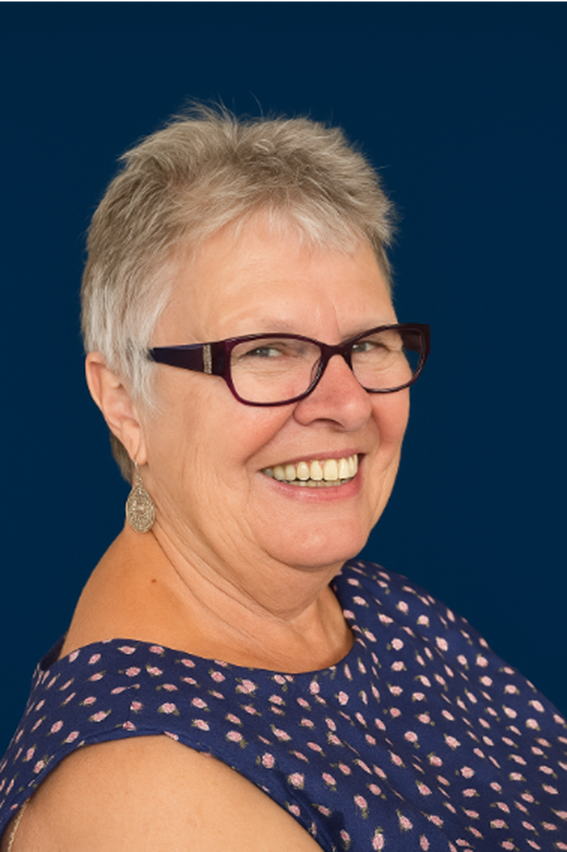
Professor Margot Gosney (Ap 78)
Professor Margot Gosney is an internationally recognised clinician, academic and leader in Geriatric Medicine. After graduating from Wellington College as one of the early ‘first girls’ (and the only girl in the entire Upper Sixth), she entered Medical School in Liverpool, graduating in 1983. From the outset she knew she wanted to support the most vulnerable in society and chose Geriatric Medicine as her specialty.
Her early career in North West England combined clinical responsibility with innovation in medical education. In 1996, she helped to design and implement a new Medical Curriculum while also managing 40 inpatient beds, undertaking research and teaching. Her research interests included influenza, cancer and nutrition, and her national influence grew through decision-making and examination roles with the General Medical Council and the Royal College of Physicians. During this time, she also began advising government on influenza vaccination and on improving the assessment of older people with cancer – work that remains a source of deep professional pride.
In 2003, Professor Gosney was appointed Chair at the University of Reading, alongside clinical responsibilities at the Royal Berkshire Hospital. Here, she led a major expansion of Elderly Care Medicine, increasing consultant numbers from two to more than 20 and overseeing the opening of a new hospital block. Under her leadership, Elderly Care Medicine became the UK’s largest medical subspecialty, reflecting her success in raising interest and capacity in the field. She also developed the subspecialty of Oncogeriatrics, now recognised across the UK.
Her commitment to education extended beyond undergraduate training to postgraduate development, serving as Deputy Postgraduate Dean for Oxford and the Thames Valley. She has influenced the training of thousands of medical students, many of whom now form the backbone of the NHS. Alongside this, her research has focused on improving outcomes for frail older people while maintaining a strong scientific foundation. She has written over 100 peer-reviewed publications, authored more than 20 textbook chapters, and secured over £20 million in research funding.
Through her leadership in clinical practice, education and research, Professor Gosney has significantly shaped the future of Geriatric Medicine and continues to champion the needs of older patients at both national and international levels.
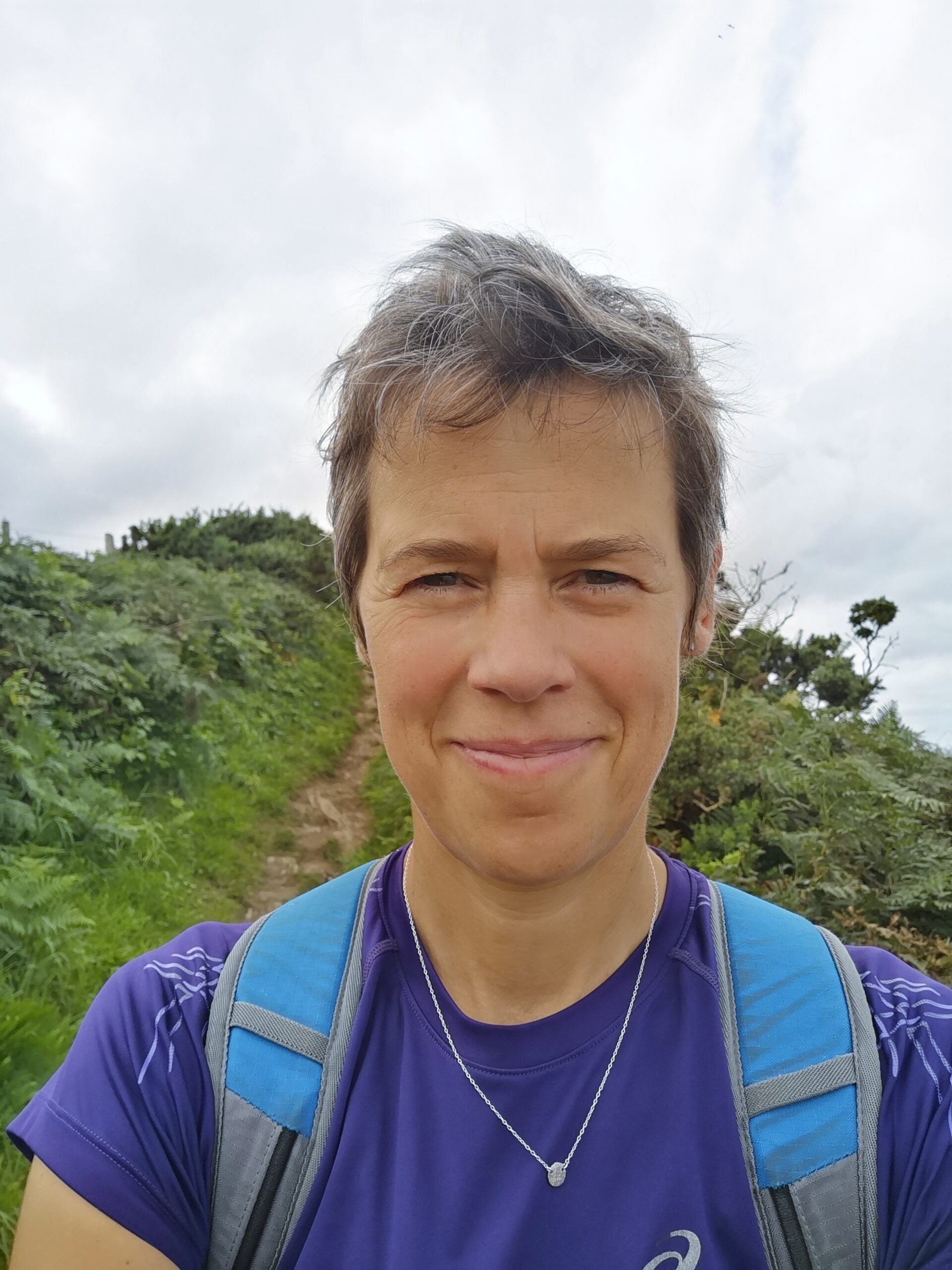
Lucy Pearson
Lucy Pearson is a nationally recognised education leader and former England cricketer, known for delivering transformational change across schools, sport and national organisations. With over two decades in education, Lucy served as Head of Cheadle Hulme School (2010–18), where she revitalised the school’s vision, expanded bursary provision, championed diversity and embedded active citizenship and inclusive sport at the heart of school life. As Deputy Head at Wellington College, she led its successful transition to full co-education and introduced the pioneering Wellbeing programme.
Her leadership extended into sport when she became Director of Education at The FA (2018–25), overseeing a major transformation of coach education. Under her leadership, The FA modernised its learning offer, expanded reach through digital innovation, diversified the coaching workforce and achieved consistent financial surpluses.
Before her leadership career, Lucy represented England in international cricket from 1996 to 2005, earning Vodafone Player of the Year twice and equalling a Test match bowling record against Australia. Her experience in elite sport underpins her lifelong commitment to performance, inclusion and empowerment.
Lucy has served on the ECB Board and UEFA’s JIRA Panel, and now Chairs the Lord’s Taverners charity. She remains a leading advocate for equity, learning and leadership through sport and education.
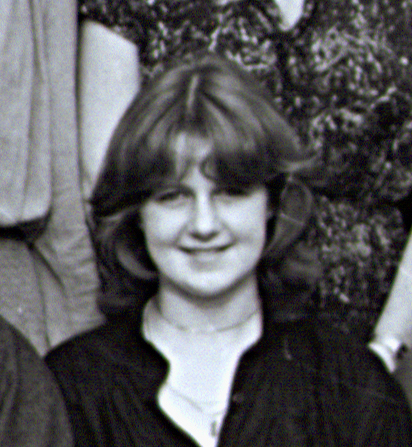
Anne Seymour (Ap 79)
Anne Seymour began her career in property management and development after university before moving into property marketing, where she set up an in-house service for a leading London estate agency. At a time when residential and commercial property was booming, she often found herself one of the only women in a predominantly male industry. Frequently the only woman on building sites or in meetings, she was sometimes mistaken for a secretary – an assumption she learned to turn to her advantage, reminding colleagues she was in fact the client.
‘I allowed the male assumption that I was not a figure of authority to continue, while they divulged more information than they would have done otherwise, only reminding them once they had done so that I was in fact the client. They then realised they had probably said more than they should. I did not go in declaring my role, just waited until the moment was right.’
Drawing on the adaptability and resilience she developed during her time at Wellington, she thrived in creating roles from scratch and navigating the aggressive culture of the industry. For her, Wellington was formative in building a thick skin and the confidence to operate in challenging environments, lessons that shaped her professional life.
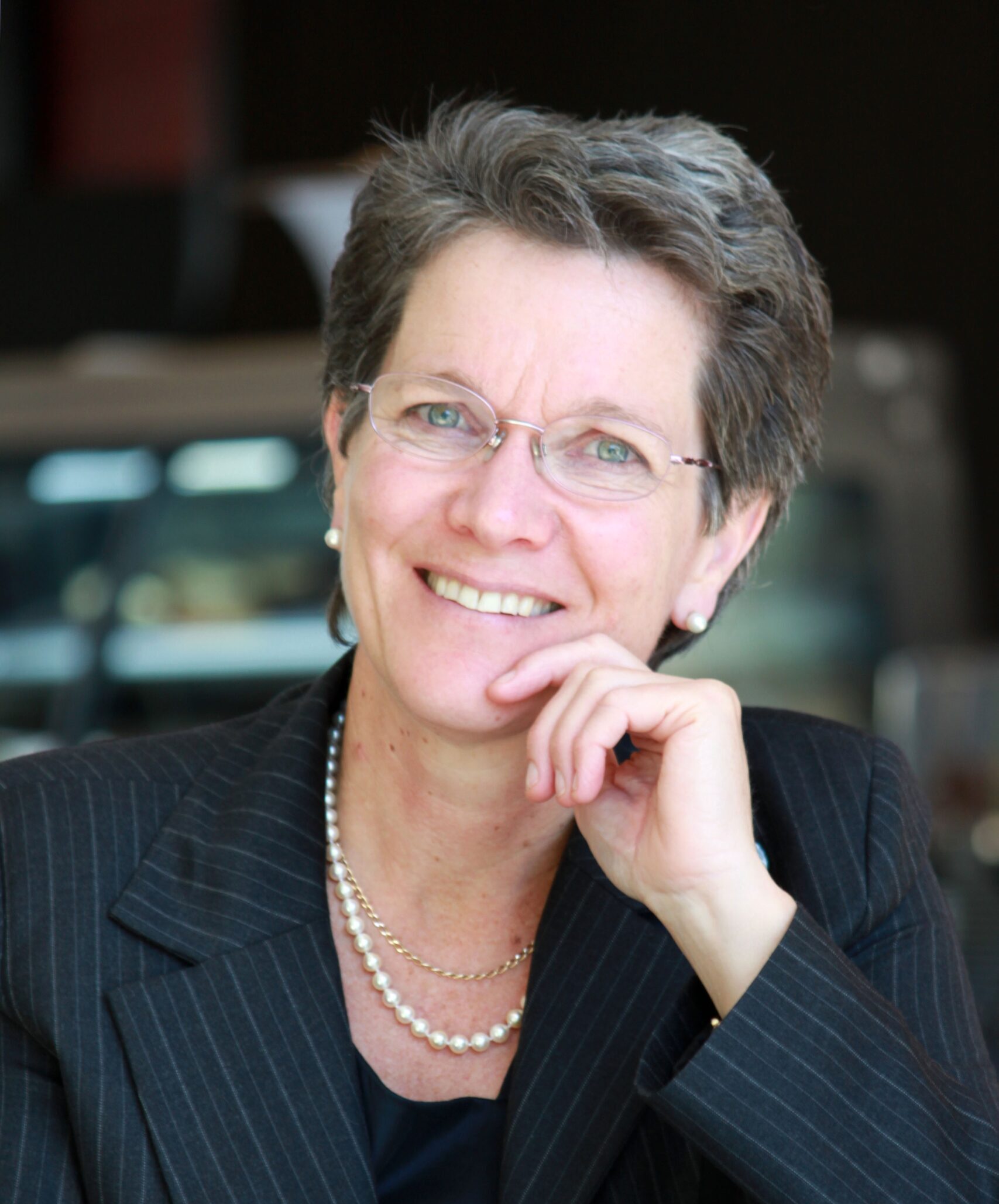
Nicola Shadbolt (Ap 73)
After being one of the early girls at Wellington, Nicola Shadbolt went on to study Agriculture, an applied science, at Nottingham University, where she was one of only four women on her course. Her degree required practical experience, leading her to work on livestock farms in the UK and then cattle ranches in North America. She returned to New Zealand to pursue a Master’s in Farm Management. From the outset of her career, Nicola often found herself the only woman in the team, an experience that became a hallmark of her journey through agriculture.
Her career has since spanned government, agribusiness, consultancy and academia. She is now a Professor in Farm and Agribusiness Management. In parallel with her academic career, Nicola and her husband built a farming business, from the ground up, with equity partners. Today, they farm 2,300 hectares, producing sheepmeat, beef, wool, venison, velvet, milk and timber.
Governance has been another defining feature of Nicola’s career. She has served on a wide range of boards, including mutuals and cooperatives, research institutes, government bodies, schools and private companies. Most notably, she was elected to the board of Fonterra Cooperative, New Zealand’s largest company and a global leader in dairy ingredients and food solutions. She served three terms, a total of nine years, and for much of that time was the only woman on the board. Over time, she has seen more women join these leadership spaces, which she views as a positive step forward.
Nicola is a strong advocate for diversity of thought in business, with gender being just one important dimension. She is a Registered Farm Management Consultant, a Fellow of the New Zealand Institute of Primary Industry Management, the Australian Institute of Company Directors, and the International Food and Agribusiness Management Association. Her contributions have been recognised with the Westpac Rural Woman of Influence Award (2017) and her appointment as an Officer of the New Zealand Order of Merit (2018) for services to agribusiness.
With three sons and a professional life spent largely in male-dominated environments, Nicola’s early experience at Wellington proved to be tough but invaluable preparation for what followed.
 8
STEM Pioneers
8
STEM Pioneers
 8
8Throughout history, women in STEM (Science, Technology, Engineering and Maths) have overcome barriers and challenged conventions, paving the way for future generations. Wellington honours the many women who continue to lead innovation in these fields.
Here, in front of our Science labs and with the technology block ahead of you, notice how tradition and innovation sit side by side.
Meet the Pioneering Women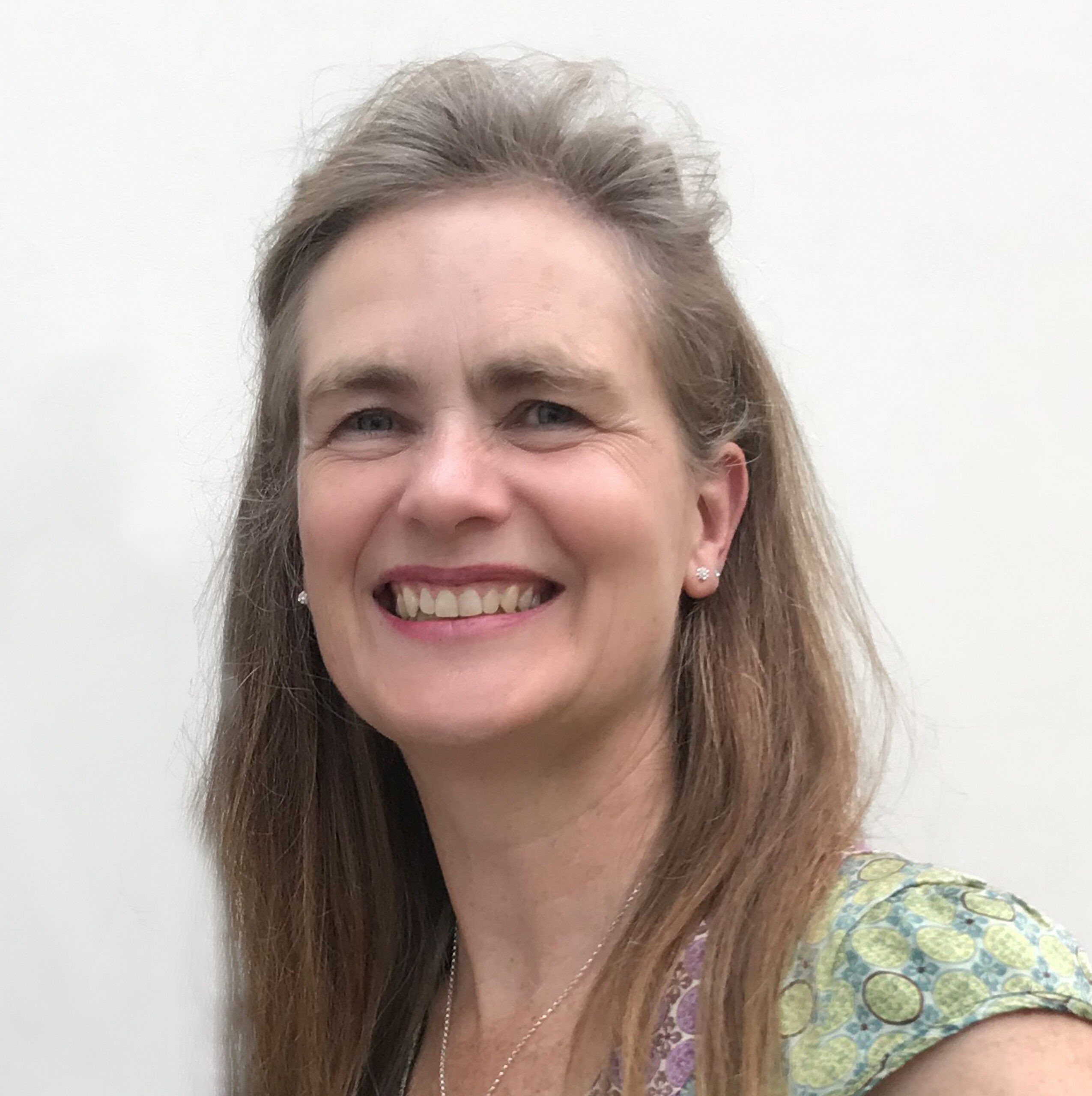
Dr Christie Marr (Ap 87)
Christie’s journey with Wellington began as part of the early generations of girls at the College – an experience that shaped her love of learning and her future path in mathematics and education. She later returned to the College as a Governor, serving with distinction as Chair of the Education Committee, helping to guide the school’s educational vision before moving on from these roles. Her story is one of lifelong connection with Wellington and a testament to the opportunities the College continues to inspire.
After leaving Wellington, Christie went on to study Mathematics at New College, Oxford, before completing an MSc and DPhil in Theoretical Computer Science, also at Oxford. Along the way she undertook a PGCE at King’s College London and taught secondary school Mathematics, first at Southfields Community College in Southwest London and later at Tiffin Girls’ School, Kingston.
Following post-doctoral research positions in Oxford and Warwick and an internship at Compaq’s Systems Research Centre in Silicon Valley, Christie moved to St Andrews, where she founded the University’s Mathematics Support Centre. She subsequently completed an Executive MBA at the Judge Business School in Cambridge, continuing her commitment to leadership in education and beyond.
Christie was Deputy Director of the Isaac Newton Institute for Mathematical Sciences in Cambridge for a little over a decade before embarking on her current role as founding Executive Director of the national Academy for the Mathematical Sciences. Her pioneering spirit – first seen as a Wellington girl – continues to guide her work as an influential leader in mathematics and education.
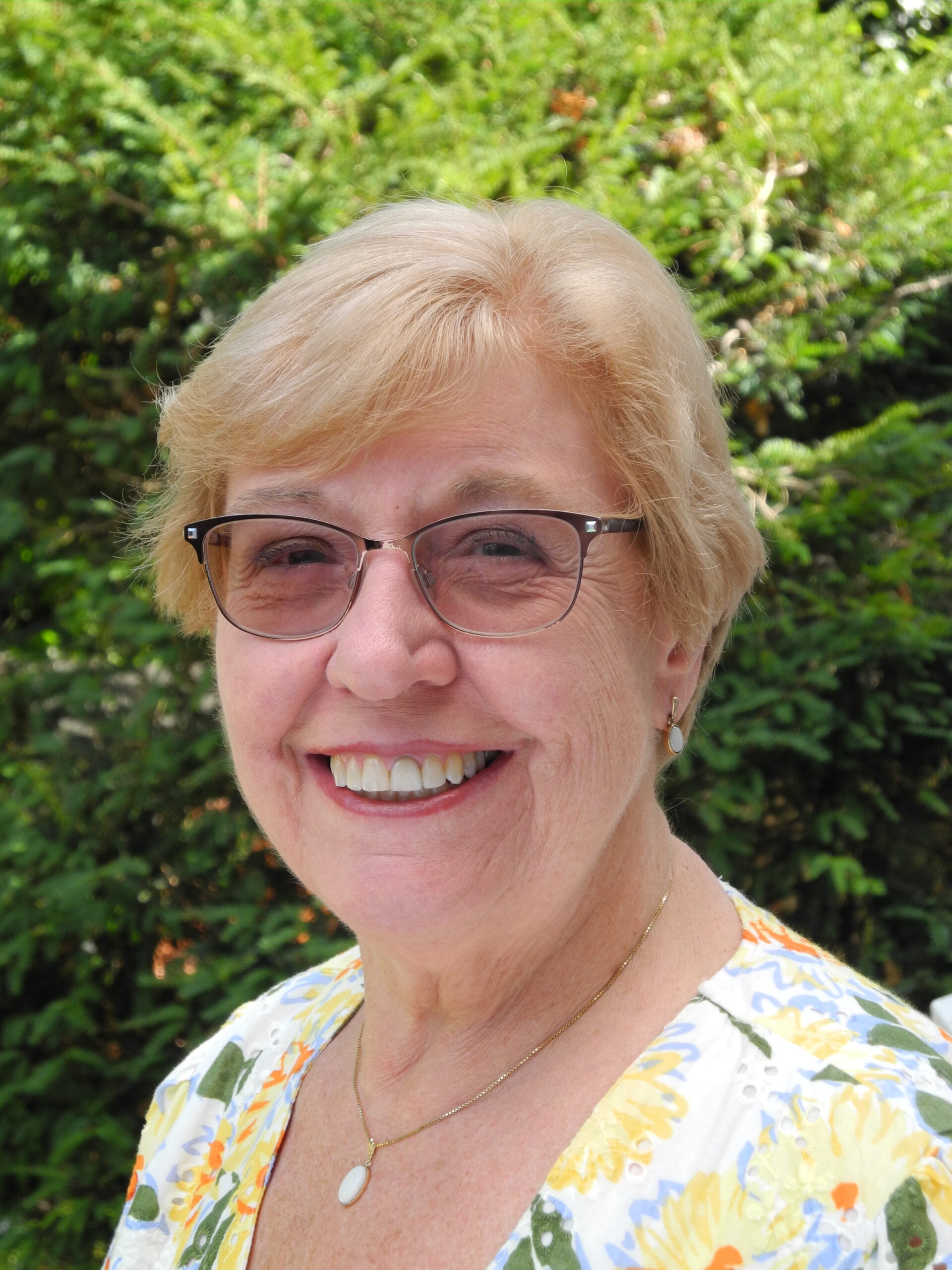
Dr Elaine Hood
Elaine studied Chemistry and Physics at the University of Manchester, completing a PhD in Nuclear Chemistry before spending seven years in the nuclear power industry. In 1989, she joined the teaching staff at Wellington College, teaching both Chemistry and Physics. At the time, women made up only a small proportion of the Common Room, but she quickly established herself as a respected and much-admired member of the Community.
Over the years, she served as Head of Careers, Tutor in two Boarding Houses and leader of the Photographic Society for around 15 years – photographing new pupils, staff and prizewinners for the College Yearbook. She also contributed to the cultural life of the school as a member of the choir.
A long-admired and exceptional teacher, she took the greatest pride in seeing her pupils achieve more than they ever thought possible. Among many special moments, she fondly remembered her 2011 A Level Chemistry class – a lively, close-knit group whose hard work, good humour and exceptional results made them truly unforgettable.
After retiring from full-time teaching in 2017, she returned for a further two years to support the Academic Support Department. Her long-standing commitment and contributions have left a lasting mark on the College Community.
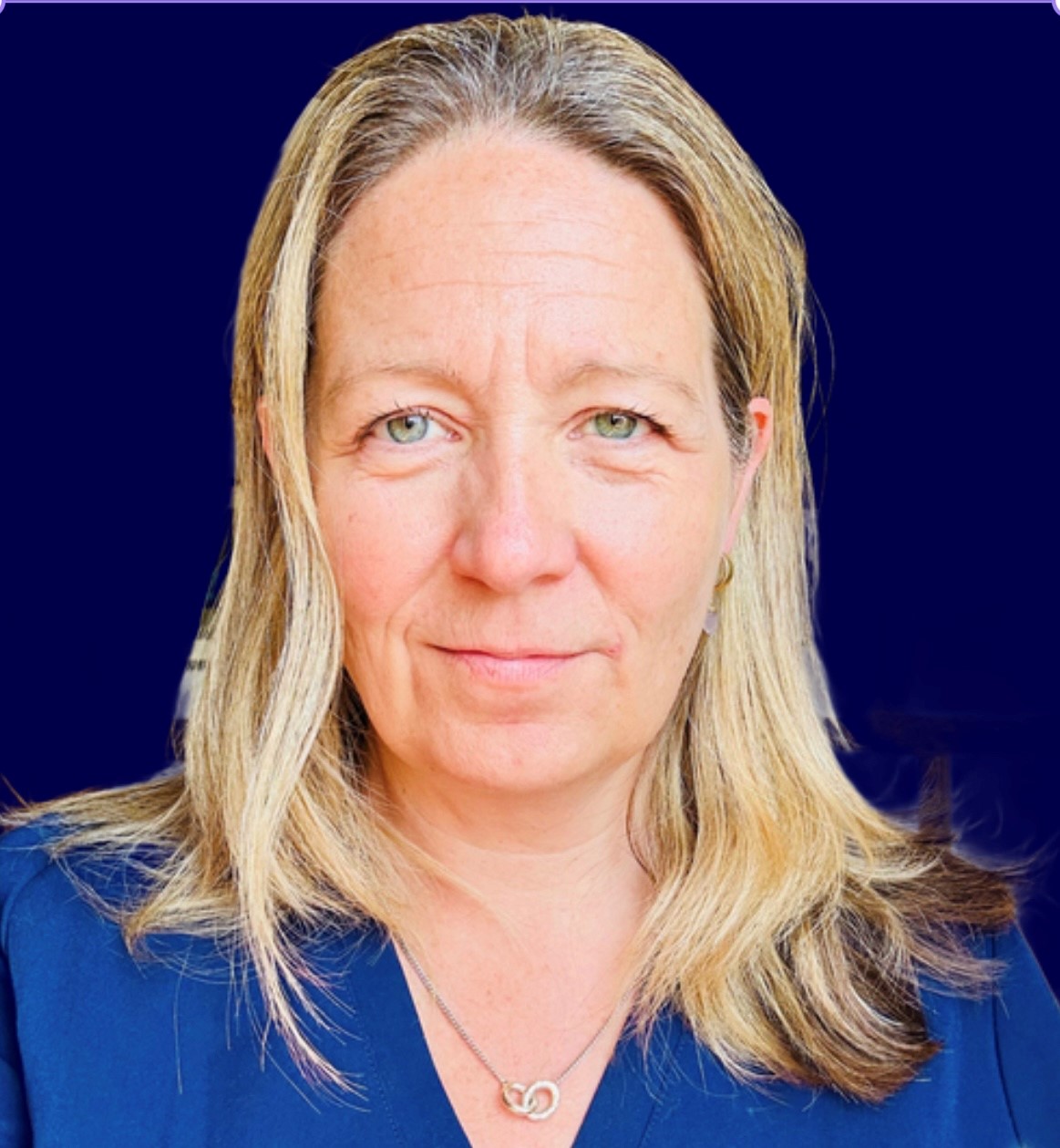
Dr Caroline O’Keeffe (Ap 92)
After leaving Wellington, Dr Caroline O’Keeffe (née Baugh) spent a year with the British Army’s Gurkhas in Hong Kong and Nepal before studying medicine at Bristol University and completing a Diploma in Tropical Medicine in London. Early in her career, she trained in anaesthetics and emergency medicine, developing expertise in pre-hospital care, expedition medicine and tropical medicine. In 2005, she raced to the Magnetic North Pole, combining adventure with medical leadership.
Caroline then spent five years in sub-Saharan Africa, living in Sudan and Kenya and working with Médecins Sans Frontières and GOAL. She led one of the first MSF teams into Darfur after the start of the atrocities, helping to establish hospitals, primary care services and feeding programmes for internally displaced people.
For the past 12 years, Caroline has worked in Hampshire, initially as a GP Partner and then as a Clinical Director. During the COVID-19 pandemic, she led the North Hampshire primary care response, delivering assessment centres, drive-through services, vaccination programmes and one of the first COVID Oximetry services in the country. She became Medical Director of North Hampshire Urgent Care (NHUC) in 2021, Deputy Chief Executive in 2023 and, from November 2025, will take up the role of Chief Executive.
Caroline’s memories of Wellington remain an important foundation for her personal and professional life. She recalls the early 1990s as not being for the faint-hearted, but they fostered resilience and forged bonds with lifelong friends. A favourite memory was taking part in the school’s production of Cabaret, which involved almost every girl in the school and captured the extraordinary sense of opportunity and community at Wellington. Looking back, she credits her time there with instilling resilience, confidence and a lasting curiosity about the world – qualities that have guided her throughout her career, from racing to the Magnetic North Pole in 2005 to being appointed Chief Executive of NHUC.
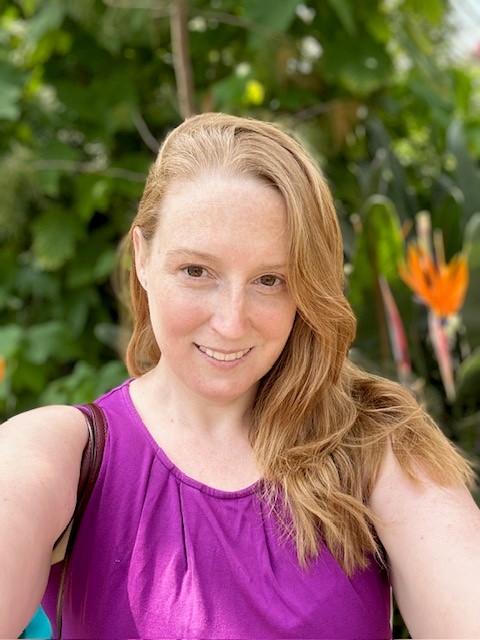
Dr Rachel Parish (Ap 99)
Rachel attended Wellington College for Sixth Form between 1997 and 1999, before reading Biochemistry and Genetics at the University of Nottingham, graduating in 2002. She went on to complete a second Degree in Medicine at the University of Southampton in 2006 and has worked as a doctor ever since, becoming a Consultant in Emergency Medicine and Paediatric Emergency Medicine in 2018.
A keen clay shooter since the age of 14, she represented England at the 2006 Commonwealth Games in Melbourne during her final year of medical school, winning gold in the pairs event and silver in the individual event. After her discipline was removed from the Olympic and 2010 Commonwealth Games programme, she switched to another shooting discipline in 2007, achieving a GB ranking of 2nd that year. Following a period away from competition to focus on her medical career, she returned to shooting in 2013 when her preferred discipline, double trap, was reinstated for the 2014 Commonwealth Games in Glasgow – winning bronze.
Balancing elite sport with a demanding medical career, she went on to become double European Champion in 2016 (individual and mixed team) and secured bronze medals at the World Championships in both 2014 and 2017. She also competed at the 2018 Commonwealth Games in Australia, finishing 6th.
In recent years, she has combined her consultant role with family life, welcoming a daughter in 2024, and is now exploring ways to balance work, home life and her passion for shooting.
 9
Industry Leaders
9
Industry Leaders
 9
9This marker is dedicated to women who have shaped the world of business and enterprise. Innovators, risk-takers and problem-solvers, they exemplify the entrepreneurial spirit.
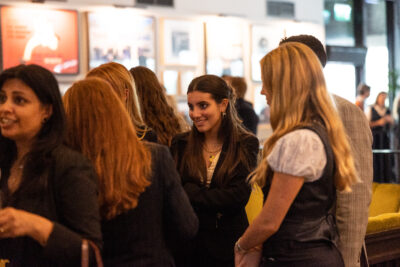
Among them are those who had the vision to take the spirit of Wellington College and create extraordinary schools in other parts of the world. Here, we celebrate these leaders who have carried Wellington’s values far beyond these gates.
Meet the Pioneering Women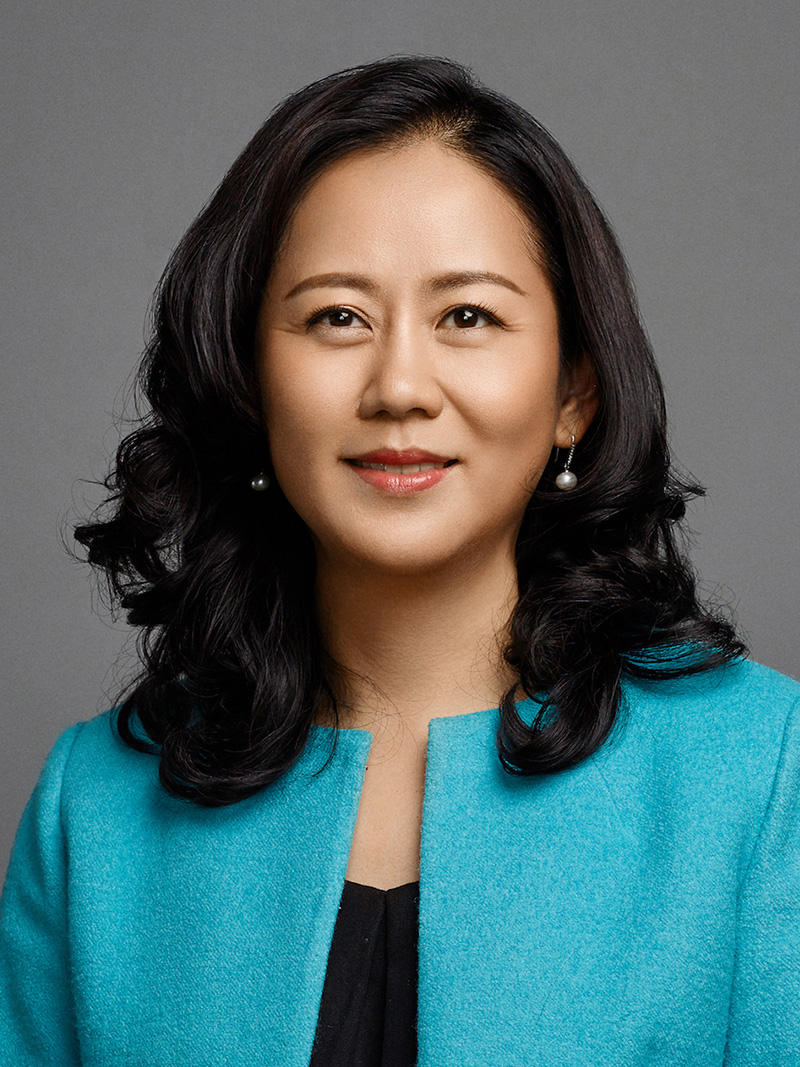
Joy Qiao
Joy Qiao is the Founder and Chair of Wellington College Education (China) (WCEC), which she established in 2009. Under her visionary leadership, WCEC has grown into one of the most respected international education groups in China and, globally, operating six schools across Tianjin, Shanghai, Hangzhou and Nantong, serving more than 5,400 pupils.
Born and raised in Shanghai, Joy later studied at Oxford University, where she met her husband, Martin. Inspired by their two sons, she envisioned creating the world’s leading English-Chinese bilingual schools, combining the strengths of British and Chinese education. She believes that bilingualism, cross-cultural awareness and global citizenship are essential skills for young people in the 21st century, when East meets West.
One of Joy’s most treasured memories is her first visit to Wellington College in the UK and her meeting with Sir Anthony Seldon. When she proposed the idea of opening Wellington College International schools in China, she discovered that Sir Anthony had been looking for a partner in China for several years. Their visions of building cultural bridges aligned perfectly, and they immediately clicked – laying the foundation for what would become a transformative educational partnership.
Since then, Joy has expanded Wellington’s reach far beyond China. In 2024, she announced the group’s first overseas school in the San Francisco Bay Area, set to open in 2026, marking a milestone in exporting WCEC’s bilingual and bicultural model to the global stage. Today, WCEC employs more than 1,400 staff from 32 countries, has been recognised as one of ‘Asia’s Best Employers’ for five consecutive years and sends graduates to world-leading universities including Oxford, Cambridge, Stanford, Caltech and the University of Pennsylvania.
A passionate advocate for cultural exchange, Joy has championed international dialogue through initiatives such as the Wellington Education Festival, which in 2025 brought together over 70 global experts and 800 participants. Recognised with accolades including the British Business Awards’ ‘Business Partnership Award’ and top rankings in Forbes China and Hurun international school lists, she remains committed to bridging China and the world through education.
Joy also champions the achievements of women. She says: ‘I was lucky enough to be brought up by parents who value girls’ education as much as boys’, who never set different expectations on me from my brother, academically, sports-wise or socially. Therefore, I often forget that I AM a woman. I have been in meetings where I was the only woman, under 40, non-white and I’d be fully immersed in the discussions for hours, before suddenly noticing that. Hence, my advice to my fellow women entrepreneurs is not to care about our gender too much.
That said, we shouldn’t underestimate the hurdles that women have to overcome to reach the same goals as men. On average, we still earn 20% less than men. Typically, women perform unpaid caregiving at home at 3.2 times the rate of men. It’s more complex for women to juggle work and life. That’s why it’s important to celebrate the achievements of women, to recognise their significant contribution, to show that anything is possible and to be an inspiration for future generations.’
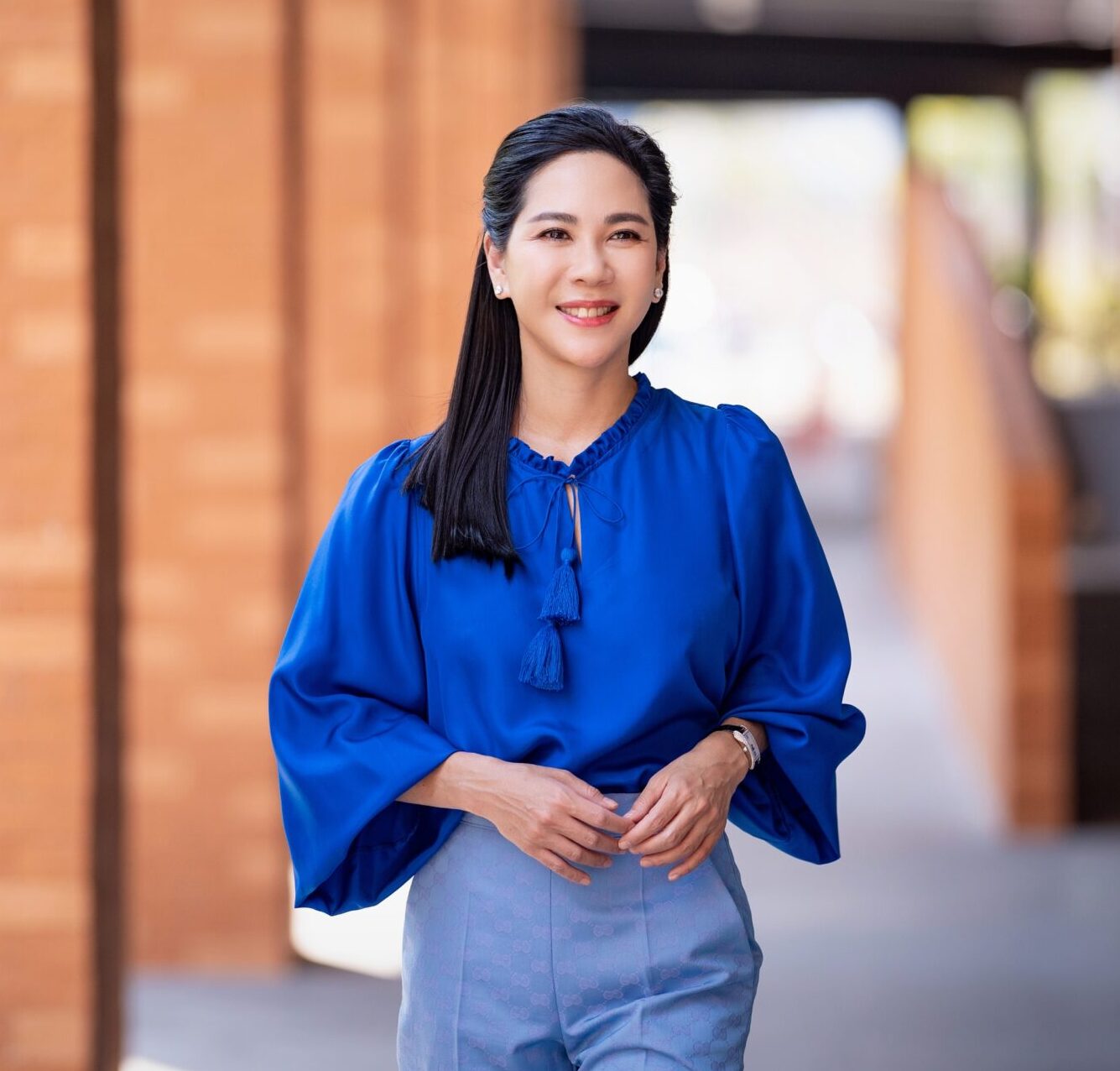
Darika Lathapipat
Darika Lathapipat is the Co-Founder and Chair of the Board of Governors at Wellington College International School Bangkok and President of Dhurakij Pundit University, one of Thailand’s leading private universities. A trailblazer in international education, she has redefined standards for schools and higher education in Thailand while inspiring women to pursue leadership roles.
Educated in Thailand and the UK, Darika earned her BSc and MBA from Imperial College London and a doctorate in IT Management from the University of New South Wales. After early roles in environmental research and finance, she returned to academia, where her leadership propelled Dhurakij Pundit University forward with the launch of the International College and new para-medicine faculties.
Her career highlight has been introducing Wellington College to Thailand in 2016. Under her guidance, Wellington College Bangkok has quickly become one of the country’s most respected schools, with exceptional academic achievements – including record-breaking IGCSE results.
Darika was honoured with the 2023 AWEN (ASEAN Women Entrepreneurs Network) Award for her contributions to education across the ASEAN region. Among her proudest memories are celebrating student successes on Wellington’s Speech Day and witnessing the positive impact her schools have had on young people.
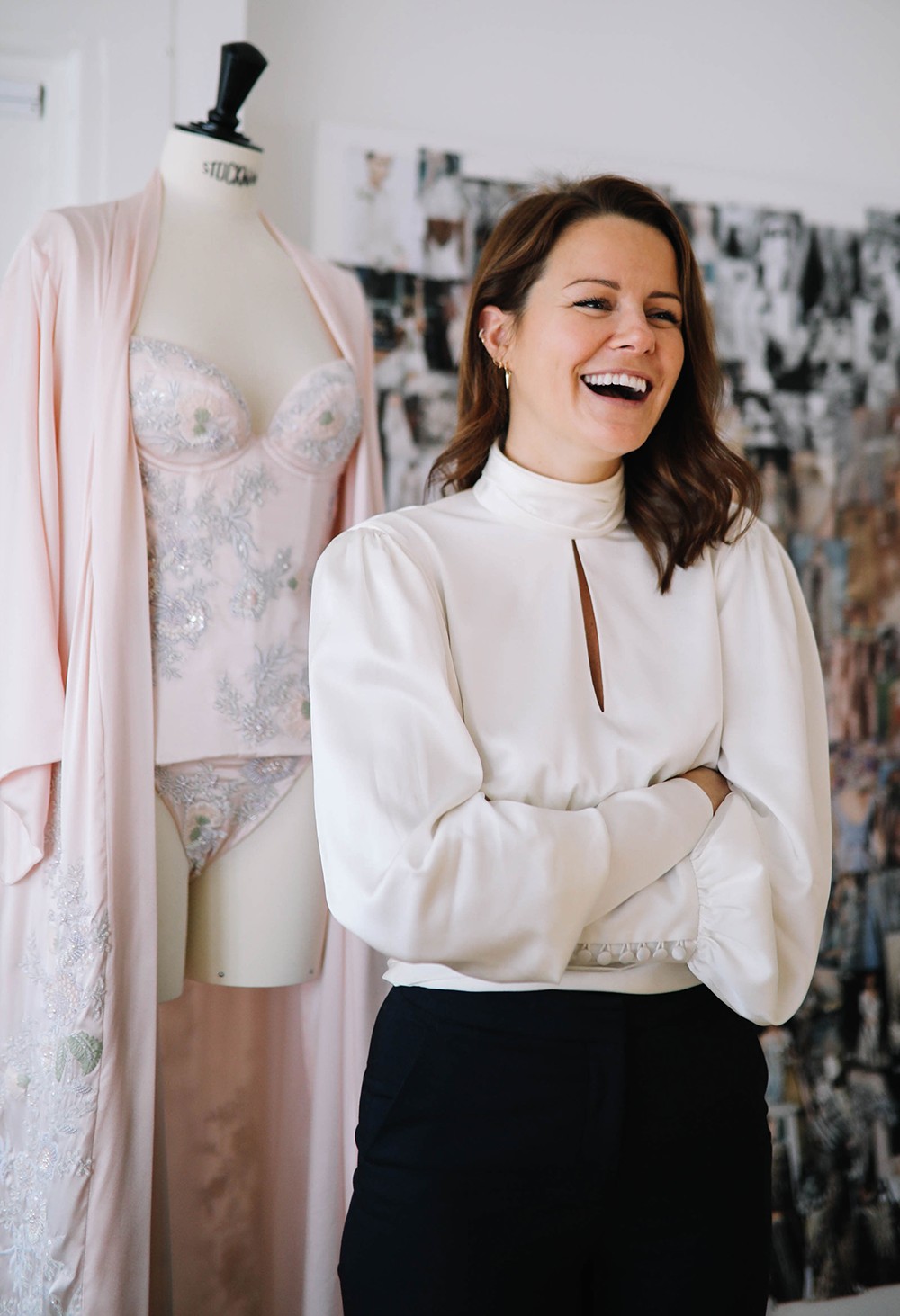
Claudia Lambeth (Ap 08)
Claudia Lambeth Scott is the founder and CEO of Luna Mae London, the couture lingerie house she launched in 2012 at just 22 years old. A graduate of King’s College London, where she studied Law, Claudia spent two years developing the first Luna Mae bra before establishing the brand with a mission to redefine bespoke lingerie. Under her leadership, Luna Mae London has become internationally recognised for its exceptional craftsmanship, discreet service and highly personalised fittings, attracting a global clientele. Claudia’s entrepreneurial achievements have earned widespread recognition, including being named to Forbes’ 30 Under 30 in 2020 and winning Entrepreneur of the Year at the Great British Entrepreneur Awards in 2019.
‘My biggest career highlight was being invited to Buckingham Palace for a fitting when I was just 26 years old. I’m not allowed to say anymore on the subject however due to NDAs(!). Also flying to Qatar on a princess’ private jet to deliver her commission with the couture Alexander McQueen team who were also creating a wedding dress for the client.’
 10
Leading the Way
10
Leading the Way
 10
10As Wellington has traversed a 50-year journey of co-education, the women who work here have led the way in embracing and supporting a thriving, inclusive co-educational community.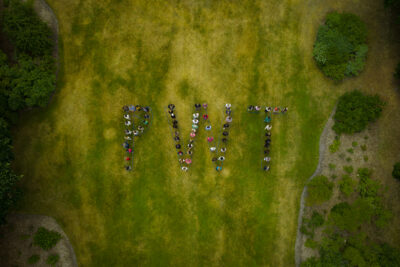
Finishing in the Quad, opposite the doors to the Common Room — once a space where women were allowed only by invitation, this stop is both symbolic and celebratory. Here, you can also see the commemoration of all those who worked for many years at Wellington, with staff from all areas honoured side by side.
This further emphasises Wellington’s commitment to inclusion in every sense. When the door to the Dining Room is open, you may also glimpse the portrait of the first woman to be President of Common Room as we seek to commemorate and represent all of our Community upon our walls.
Meet the Pioneering Women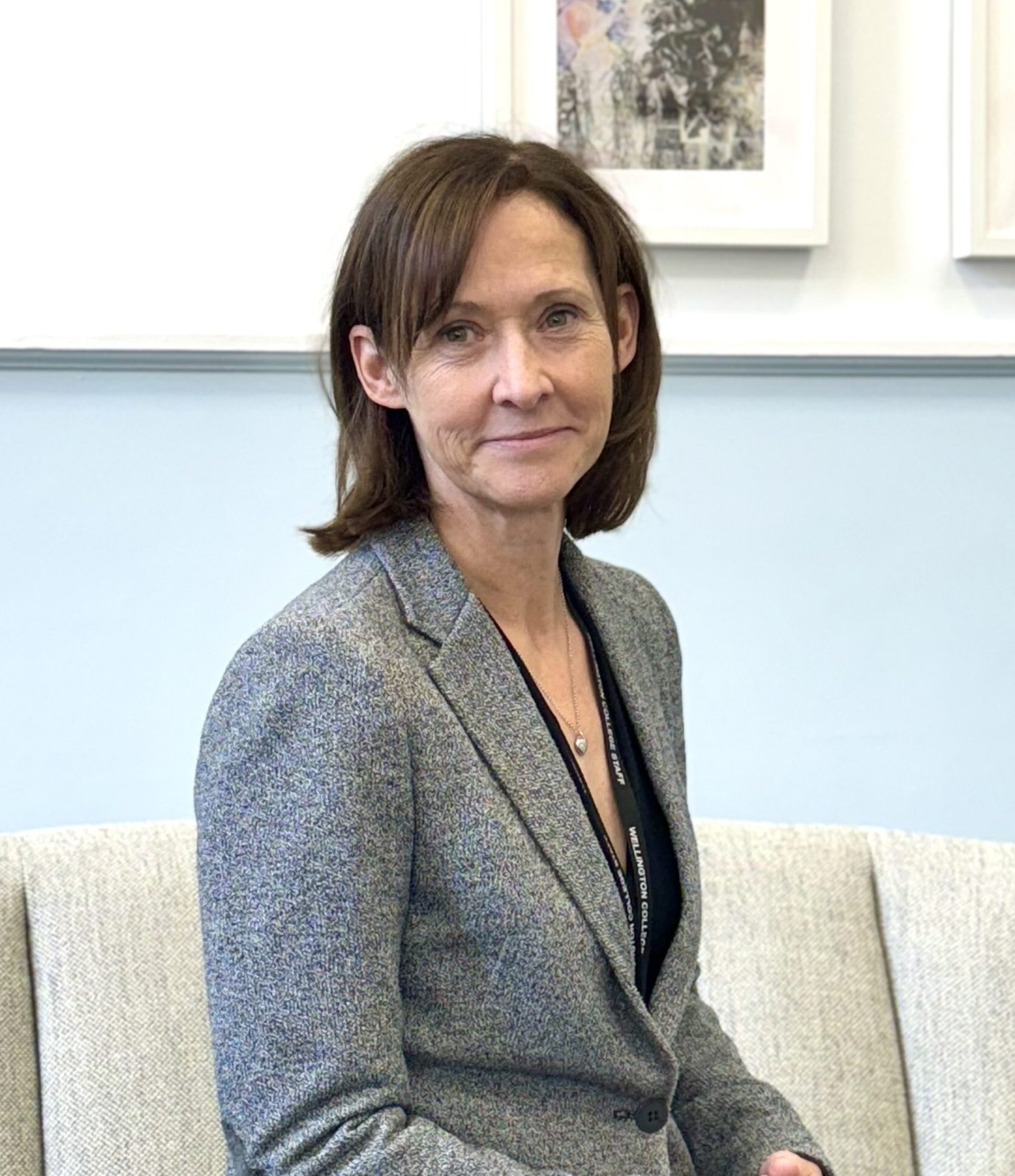
Cressida Henderson
Cressida joined Wellington College in September 1993 as a teacher of French and Spanish, having graduated and completed her PGCE at Oxford University (Keble College), where she was awarded a double Blue. Over more than three decades, she has contributed to every facet of College life – teaching, coaching, boarding and leadership. She has coached both boys and girls, particularly in netball and tennis, and lived in Hardinge and Benson Houses while supporting her husband in his role as Housemaster.
Cressida has held numerous senior roles, including Head of French, Head of Modern Languages, Head of Middle School, Vice Principal to the Wellington Academy, and Deputy Head (Co-curricular), before being appointed Second Master in 2019. She is a passionate advocate of coaching as a dialogic approach to personal development and a keen supporter of the Arts, championing the creative pursuits of all Wellingtonians.
A powerful memory that captures her belief in co-education comes from an IB Spanish class where boys and girls, preparing for their oral exams, learned from each other’s strengths – combining planning, precision, courage and quick thinking to help one another succeed.
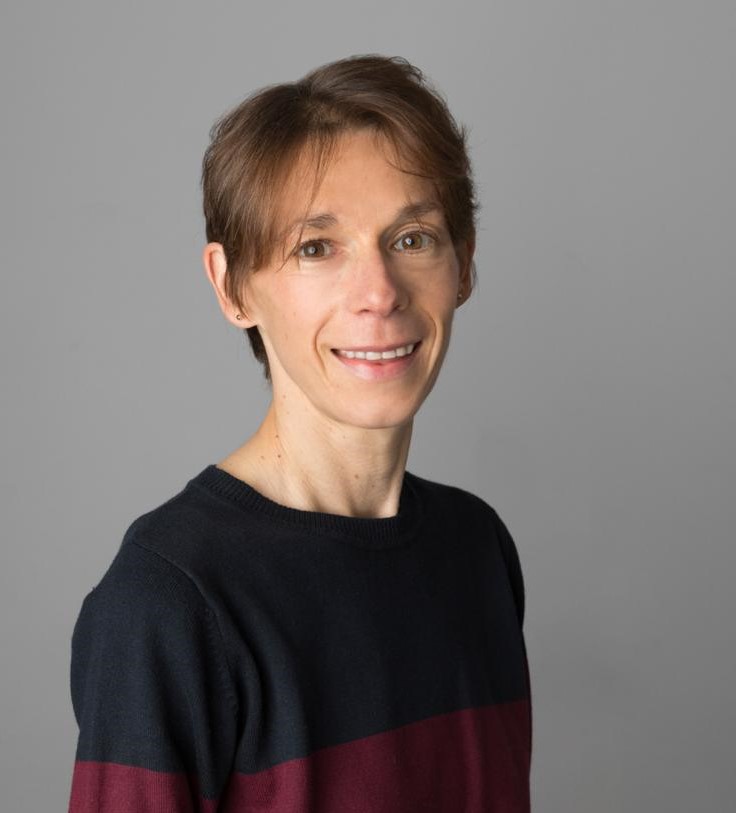
Delyth Lynch
Delyth is Director of Safeguarding at Wellington College, where she has worked since 2007. Her professional career has been defined by a commitment to creating safe, supportive and empowering environments in which every student can thrive. She speaks nationally and internationally on developing safer cultures in schools, has co-authored publications for Farrer & Co and the Department for Education, and serves as Independent Safeguarding Advisor for the charity Words Matter.
After beginning her teaching career at Kingswood School, Bath and Bromsgrove School, she joined Wellington as the first externally appointed Housemistress, founding Combermere in its new role as a girls’ House. She later served as Deputy Head (Pastoral & Wellbeing), Deputy Head (Safeguarding), and in 2023, became Director of Safeguarding.
She completed the Boarding Schools’ Association Fellowship in 2019, won the BSA Research Award for her paper Abuse in Boarding Schools, and is a two-time winner of the SACPA ‘Outstanding Initiative in Safeguarding’ award (2022 and 2023). In October 2025, she published her book Beyond Compliance: A DSL’s Guide to Achieving a Safer Culture in Schools. An accomplished endurance athlete, she has completed Ironman triathlons, marathons, ultramarathons and long-distance cycling challenges, embodying the resilience and determination she seeks to inspire in others.
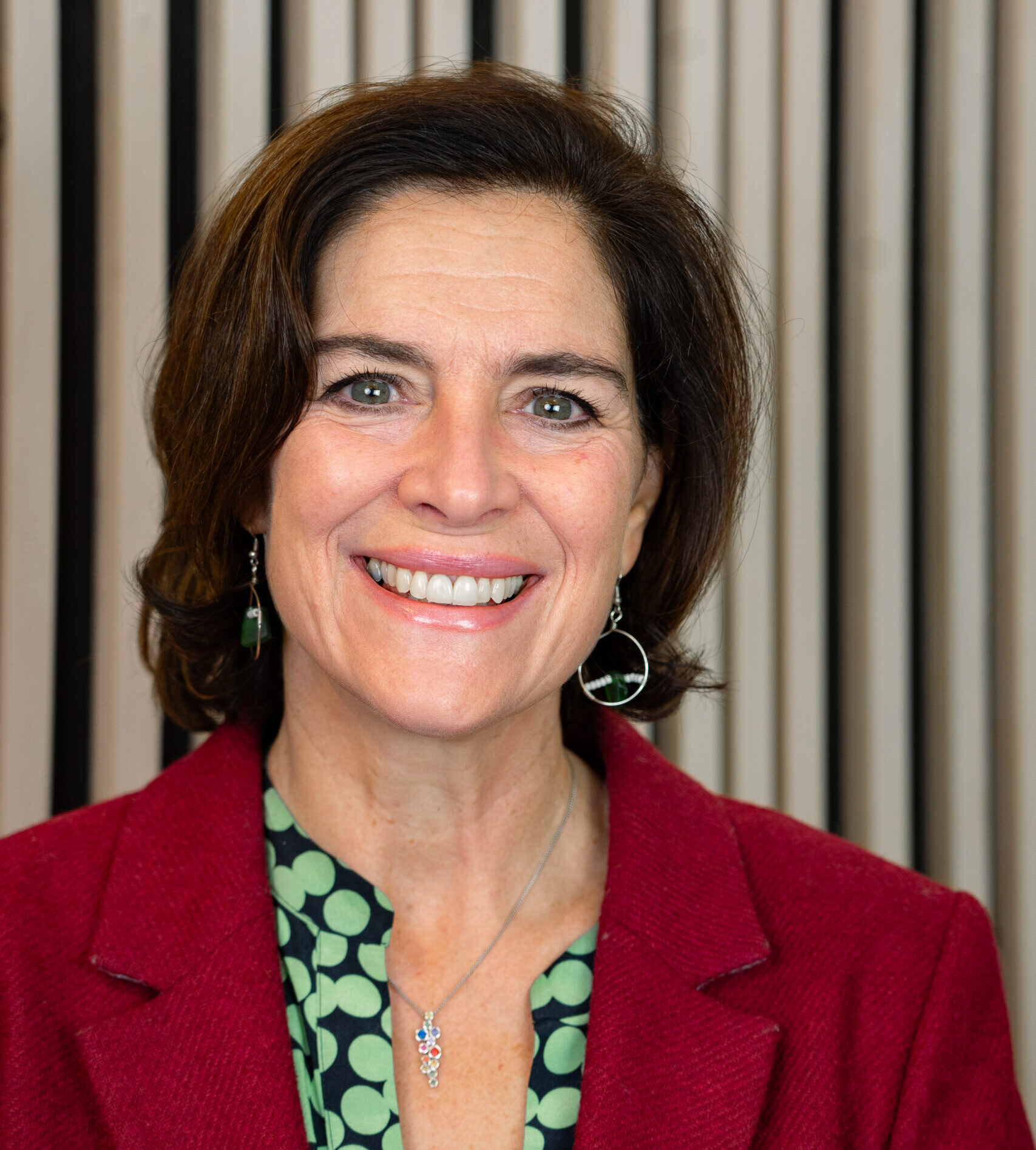
Jane Lunnon
Jane Lunnon became the first female Head of Alleyn’s School in January 2021, following six years as Head of Wimbledon High School and four years as Senior Deputy Head at Wellington College under Sir Anthony Seldon’s leadership (2010 – 14). Her connection with Wellington began much earlier: in 1997, she became the first female Head of Department when she was appointed Head of English, a role she held until 2005. Jane’s senior leadership experience spans both single-sex and co-educational schools, including Prior’s Field School, and has encompassed a variety of positions such as Head of English, Assistant Director of Studies, Head of Sixth Form, and Deputy Pastoral.
At Alleyn’s, Jane champions academic excellence alongside a rich pastoral and co-curricular programme. She has introduced an innovative bespoke tech and skills curriculum, the AiQ, created with input from MIT, and in 2025 oversaw the creation of the Alleyn’s Schools Group, launching two prep schools — Alleyn’s Regent’s Park and Alleyn’s Oakfield. An all-through school, Alleyn’s Hampstead, will open in September 2026.
Jane plays an active role in national educational leadership. She is a trustee of the Royal Springboard Foundation, co-chair and founder of the Coalition for Youth Mental Health in Schools (which includes both state and independent schools such as Wellington), a Trustee of the Dulwich Picture Gallery, and a governor at King Edward’s School, Witley. She also serves as Co-Vice Chair of the GSA/HMC Joint Higher Education and Futures Committee, contributes to the Federation for Education Development, and is a trustee of AI in Education.
As an author, Jane has co-written two influential books with Dr David James: The State of Independence (2019, second edition 2023), exploring the opportunities and challenges for independent education, and Schools of Thought (2024). In recognition of her impact, she was named Tatler Head of the Year in 2020.
Her time at Wellington remains a defining chapter. Among her fondest memories are leading the English Department from a young age and working with inspirational colleagues and pupils to create something truly special. Another, more personal, memory is meeting her husband, Neill (formerly Housemaster of the Combermere and Stanley, now Head of Tower House School), with whom she shares two children. Her identical twin sister, Jenny Brown, is also Head of a London day school — fuel for many lively family conversations.
A career highlight for Jane was serving as Sir Anthony Seldon’s deputy at Wellington, helping to bring his ambitious vision to life. Directing the opening of the College’s 150th Anniversary show at the Royal Albert Hall, complete with a full cast of over 250 and even a dragon flown in from China, remains one of the most exhilarating and rewarding moments of her career.
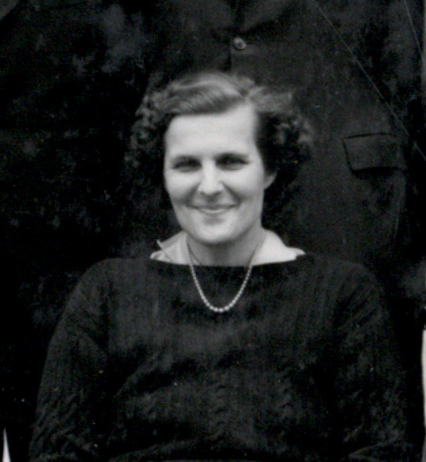
How women came to teach at Wellington
In the 19th and early 20th centuries, it was not considered appropriate for women to teach in boys’ schools. Wellington therefore had no female teachers until the First World War, when many men left to serve in the armed forces. The resulting shortage of teaching staff led to the appointment, in 1917, of Wellington’s first ever female teachers, Miss Herman and Miss Lotka.
Miss Maud Herman was a graduate of Newnham College, Cambridge, where she had taken high honours in Mathematics. She had already spent a year teaching at a boys’ school in Wrexham before coming to Wellington. At Wellington, she taught Maths to, among others, the class of Senior boys studying for the taxing entrance examination to RMA Woolwich. When she left in 1920, the Wellingtonian praised her ‘able and efficient teaching’, and stated that ‘the College owes her a debt of gratitude for her readiness to accept a novel situation, and help to carry us through a difficult time’. After Wellington, she taught at several other schools, notably 25 years at St Leonard’s School in Scotland.
Newnham College Archives contains a fascinating hand-written book listing the work done by all Newnham alumnae during the First World War, many of them in traditionally male roles, including a record of Maud’s time at Wellington.
Miss Helen Lotka was from Poznan in modern-day Poland, at that time part of the German Empire. She qualified as a teacher in Germany in 1894, and in 1897 took up her first British teaching post at Devonport High School for Girls. After working at three more schools in England, she came to Wellington, where she taught Modern Languages from 1917 until the end of 1919. She then moved to Bulcote School for Girls in North Yorkshire, where she seems to have stayed for the rest of her career. In retirement, she continued to live in North Yorkshire and won prizes for her home-grown roses.
Despite being appreciated, the women were never viewed as permanent members of staff at Wellington, and both moved on as male teachers became available again after the War.
The same situation arose during the Second World War when at least 13 male teachers exchanged the Common Room for the military, several remaining away for the entire six years of the War. At a time when women were not expected to work after marriage, the War provided an opportunity for some of them to do so. Mrs Letts and Mrs Montagnon joined the Wellington staff in 1942.
Heather Letts was a graduate of Newnham College, Cambridge, and before her marriage had worked in the Hydrographic Department of the Admiralty, charting oceans and other navigable waters. Already at Wellington following her marriage to English teacher Philip Letts, she was ideally placed to take over the teaching of Geography when the male teacher was called up. She also refereed the boys’ hockey games and was noted to have no problem exerting her authority. She left in 1944 to have a baby, but later returned and taught until 1946. After this, she ceased teaching, but remained an active member of the Wellington Community, much loved by the boys in the Anglesey, where her husband was HM, and by all those who went with the Letts on school skiing trips to the Alps.
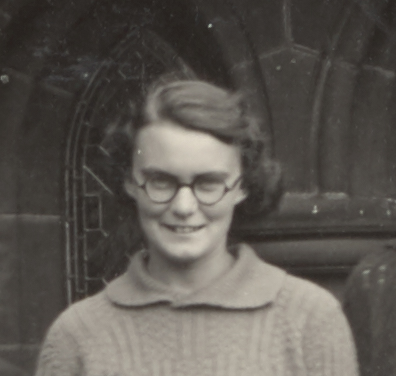
Barbara Montagnon graduated in Mathematics from Girton College, Cambridge, in 1940, and started teaching at St Leonard’s School in Scotland. In both, she followed in the footsteps of her mother, another pioneering woman. In 1942, she married and began teaching Maths at Wellington, mostly to the Sixth Form, and also to the boys of St Paul’s School, who had been evacuated to nearby Easthampstead Park. After the War, she continued to live in the area with her husband, but sadly died in 1950 aged only 31, three months after the birth of her third son. Her obituary in the Girton Review said that she had a great gift for friendship and a keen interest in local government.
Barbara Montagnon image – With permission from The Mistress and Fellows, Girton College, Cambridge.
In March of 1942, the editor of the Wellingtonian wrote: ‘Let us pray that the Governors will continue their policy, so successfully initiated this term, of employing women teachers.’ His prayer was answered, as the first two female teachers were joined by Mrs Rau, in 1943 and Miss Brownrigg, in 1944.
Dorothy Rau studied Modern History at St Hilda’s College, Oxford, in the 1920s. She and her husband both joined the Wellington teaching staff in 1943, she to teach History, he Languages, both leaving in 1946. Mrs Rau also helped to coach the entrants for the first College Reading Competition in 1944.
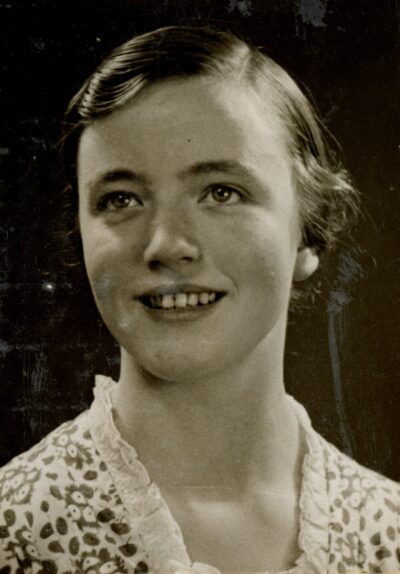
Margaret Brownrigg, known as Peggy, entered Bedford College, London in 1937 to read Geography and Geology. Her student file there reveals her determination to complete her degree despite academic and financial difficulties, and the practical problems of travelling from Ireland at the beginning of the Second World War. She joined Wellington in 1944, probably to cover for Heather Letts’ maternity leave, and taught both Geography and Maths. She left at the end of 1945 following her marriage to the Reverend Henry Chadwick, with whom she shared a love of music. The rest of her life was spent in raising their three daughters and supporting her husband’s distinguished academic career, both as a critical reader who improved his writing style, and a kindly hostess in two Masters’ Lodges. She died in 2018 at the age of 100.
Margaret Brownrigg image – Student file of Margaret Brownrigg, BC AR 200/95 (f.6672) Archives, Royal Holloway, University of London
As during the First World War, the women’s appointments were temporary and by 1947, all of them had left. Looking back at their contribution, the 1947 Wellington Yearbook commented that ‘The inter-mingling of sexes in the teaching department at public schools became necessary during hostilities and proved its value. The ladies held their own, not only in teaching ability but also in disciplinary powers. Women are taking men’s jobs everywhere and it is good to know that men (except in their own homes) can retaliate sometimes. It will be interesting to see whether public schools are strong enough to resist feminine attack. The Colonel Blimps will shudder at the mere thought of such an invasion, but Wellington of course has never produced men of this type’.
Despite these comments, it was another 30 years before the first three permanent female teachers were appointed at Wellington, in 1978.
Sign our Virtual Visitor Book
We hope you have enjoyed the trail and would love for you to sign our visitor book and leave any feedback.
If you have a question or want to know more about the Pioneering Women at Wellington College, please don’t hesitate to get in touch with us!
Acknowledgements
Thank you to the many people in the Wellington Community who have supported this project.
‘I am deeply grateful for the warmth and enthusiasm this project has inspired, and I am delighted to see it come to life. It has only been made possible through the dedication, generosity and passion of our community. I extend my sincere thanks to all who have contributed their time, energy and expertise to bring this vision to life.
In particular, I would like to thank Zoe Short, Kelly Knight and Caroline Jones, whose tireless efforts have been instrumental in bringing this vision to reality. We are especially grateful to Judy Waugh for sharing her knowledge and insight, and to Cress Henderson for her invaluable contributions and for truly mentoring and ‘leading the way’ for so many.
I am grateful as well to our students, whose contributions have enriched the trail, and especially to our scholars who have conducted interviews with OWs and written thoughtful pieces, including Izzie M (T) and Sara T (E).
My thanks also go to Norman Porter, Margot Gosney and Denise Jones, who so generously shared their memories of those First Girls, fifty years ago. How far we have come.
It is my hope that this trail will be enjoyed for years to come, and that it will continue to evolve as we celebrate and honour the many remarkable stories within our community.
Naima Charlier
Deputy Head Compassion, Belonging and Wellbeing






